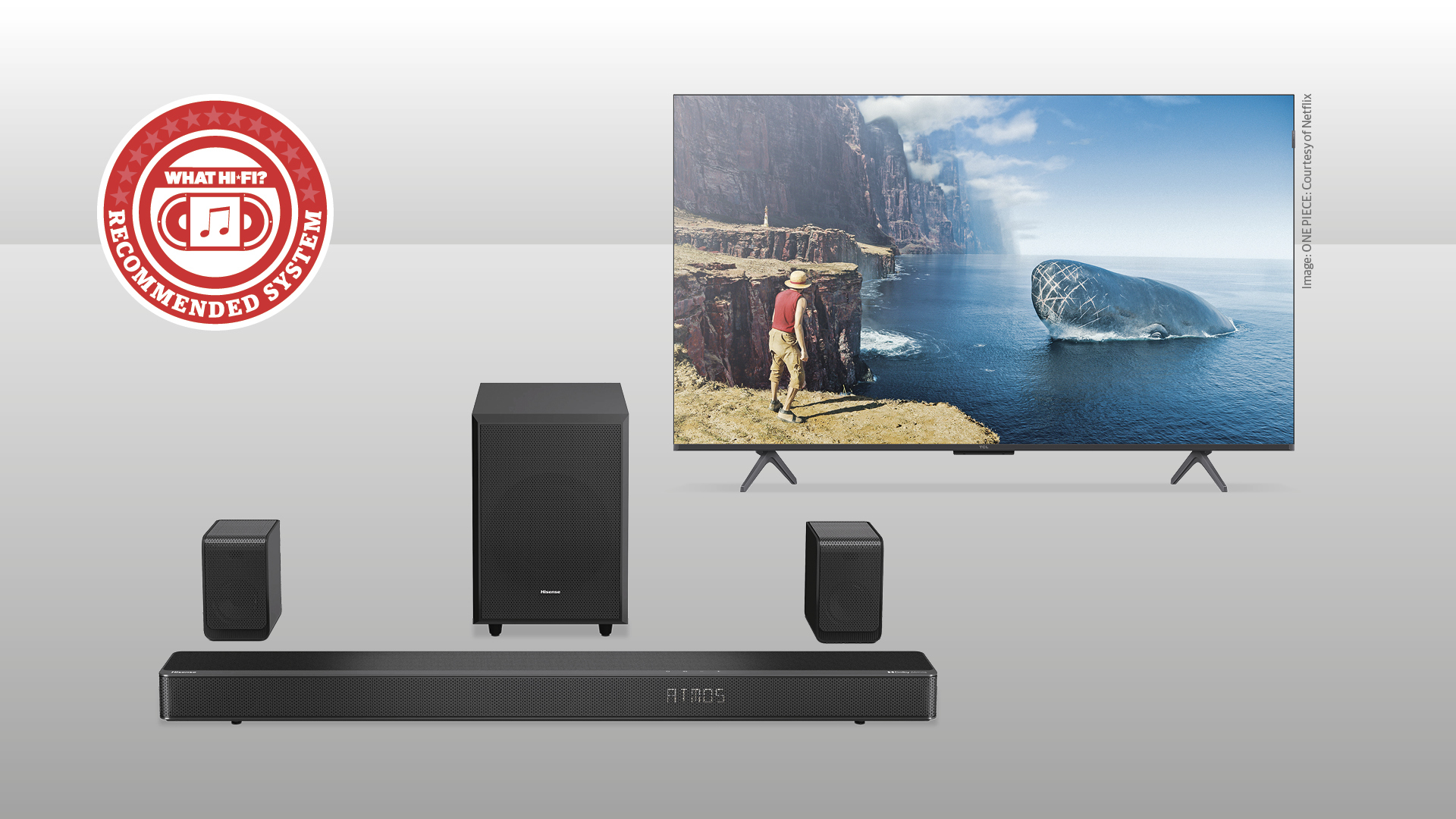Best outdoor speakers 2025: portable, wireless, waterproof models tried and tested
Great sound for the Great Outdoors
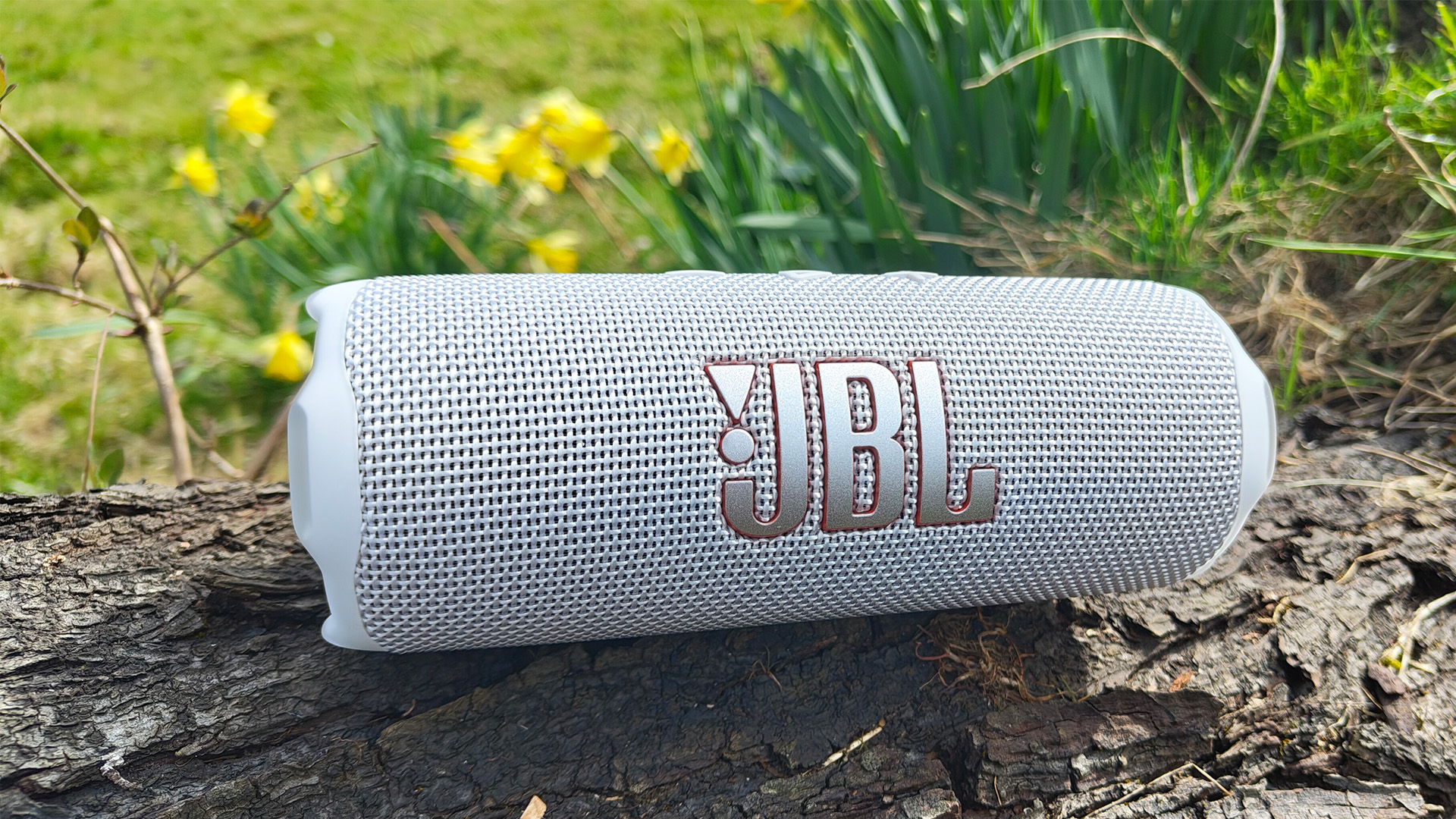
Gone are the days of wishing you could take your hi-fi setup and plonk it outdoors. The arrival of portable Bluetooth speakers has meant that listeners are no longer tethered to the indoors for their tunes, allowing music to be played any time, anywhere and at a pretty remarkable standard.
Brands such as JBL and Ultimate Ears have led the charge, with the go-anywhere speaker market growing massively over the past 15 or so years. The likes of Sony, Bang & Olufsen and Tribit have all sought to get in on the act, meaning there's hardly a dearth of brands, and the speakers to go with them, vying for your attention.
Still, it's hard to know where to start in this crowded corner of the market. Thanks to our exhaustive hands-on testing and extensive experience in this sector, you can bet we'll have sniffed out the ideal model for your needs.
From ruggedness and waterproofing to all-important sound quality, we've tested all of these Bluetooth speakers rigorously so you can be sure you're buying the best in the business.
Find out more about our testing process or keep scrolling to see our pick of the best outdoor speakers currently available.
15th December: No new entries this time, but we're looking ahead to 2026 to give you the most up to date advice and predictions for the coming year. We've recently reviewed the Pure Classic Aura Bluetooth speaker, but as it only boasts an IPX2 waterproof rating, it's not really built for outdoor use.
The quick list
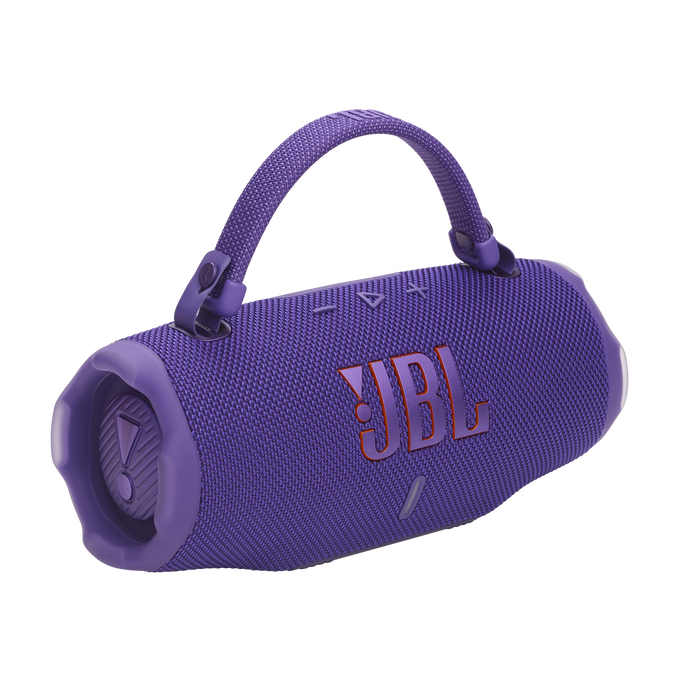
A worthy successor to the Charge 5, the Charge 6 offers outstanding sound and exceptional durability.
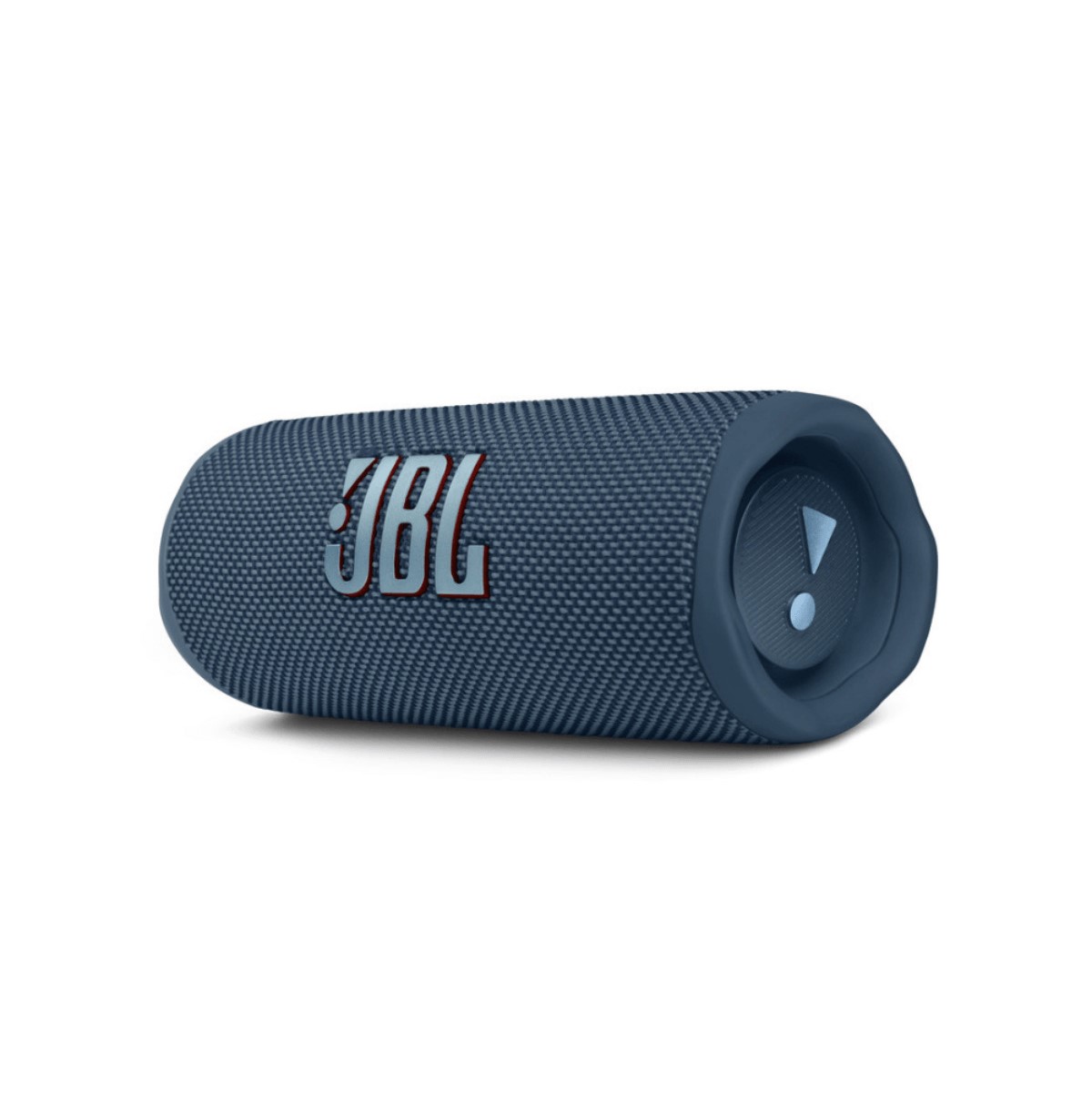
The best Flip ever blends a well thought-out design with the best sound you'll find at this level.
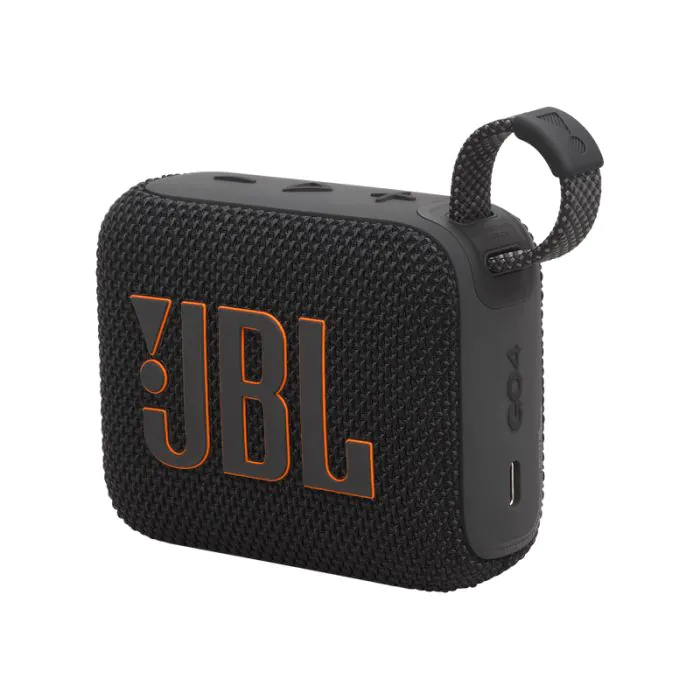
A tiny budget speaker that makes a big impact, the Go 4 is a serious upgrade on your phone's sonic capabilities.
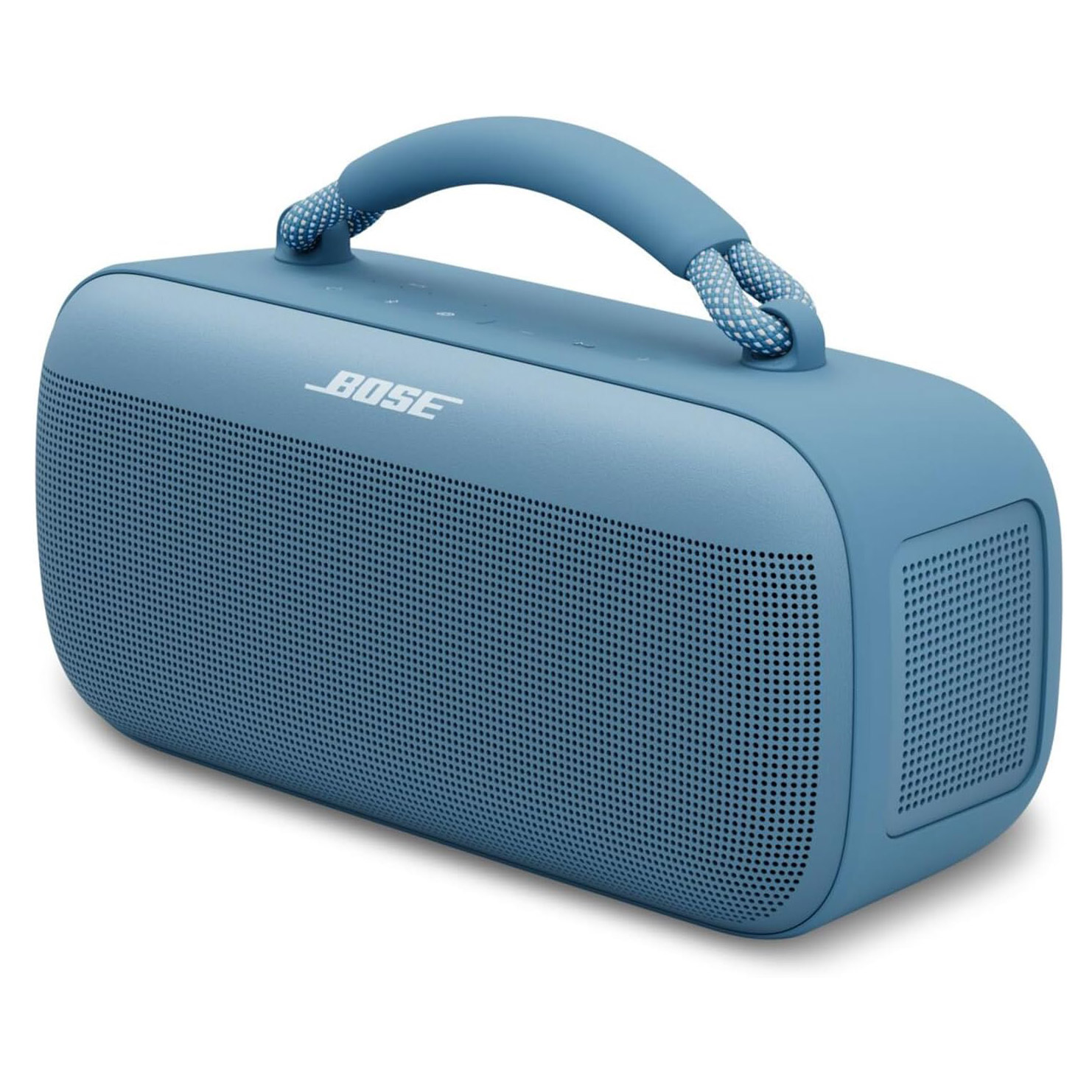
The Bose SoundLink Max is punchy and entertaining to listen to and a pleasure to use. Plus, its battery life is class-leading.
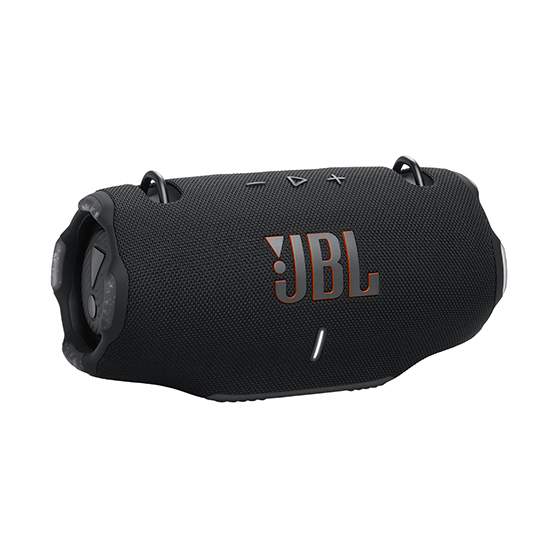
The Xtreme 4 is one of the hottest Bluetooth speakers in town, delighting us with its all-around performance and second-to-none build quality.
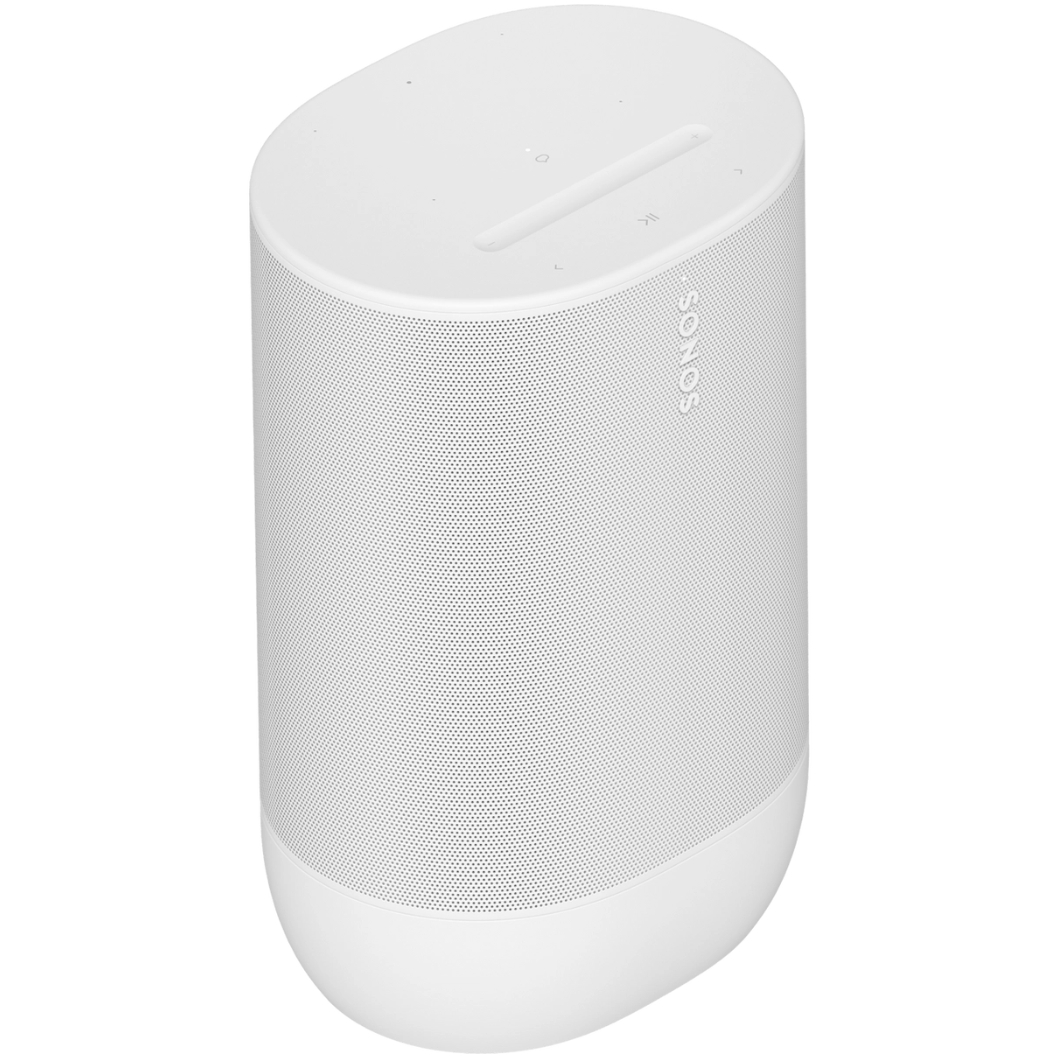
While it isn't quite a five-star candidate sonically, the Sonos' multi-room credentials make it an appealing prospect.

I'm a senior staff writer who has listened to and reviewed dozens of products – from Bluetooth speakers to truckloads of wireless headphones – during my time at What Hi-Fi?. I have first-hand experience with all of the models below, all of which I can recommend given their respective sound profiles, spec sheets and durable builds. Bluetooth speakers, especially outdoorsy ones, are big business right now, so I'm here to help you navigate this endlessly rewarding corner of the market, assessing how they sound, how they'll cope with the pressures and strains of outdoor use and the sorts of features you'll receive with your potential new purchase.
Best outdoor speaker overall
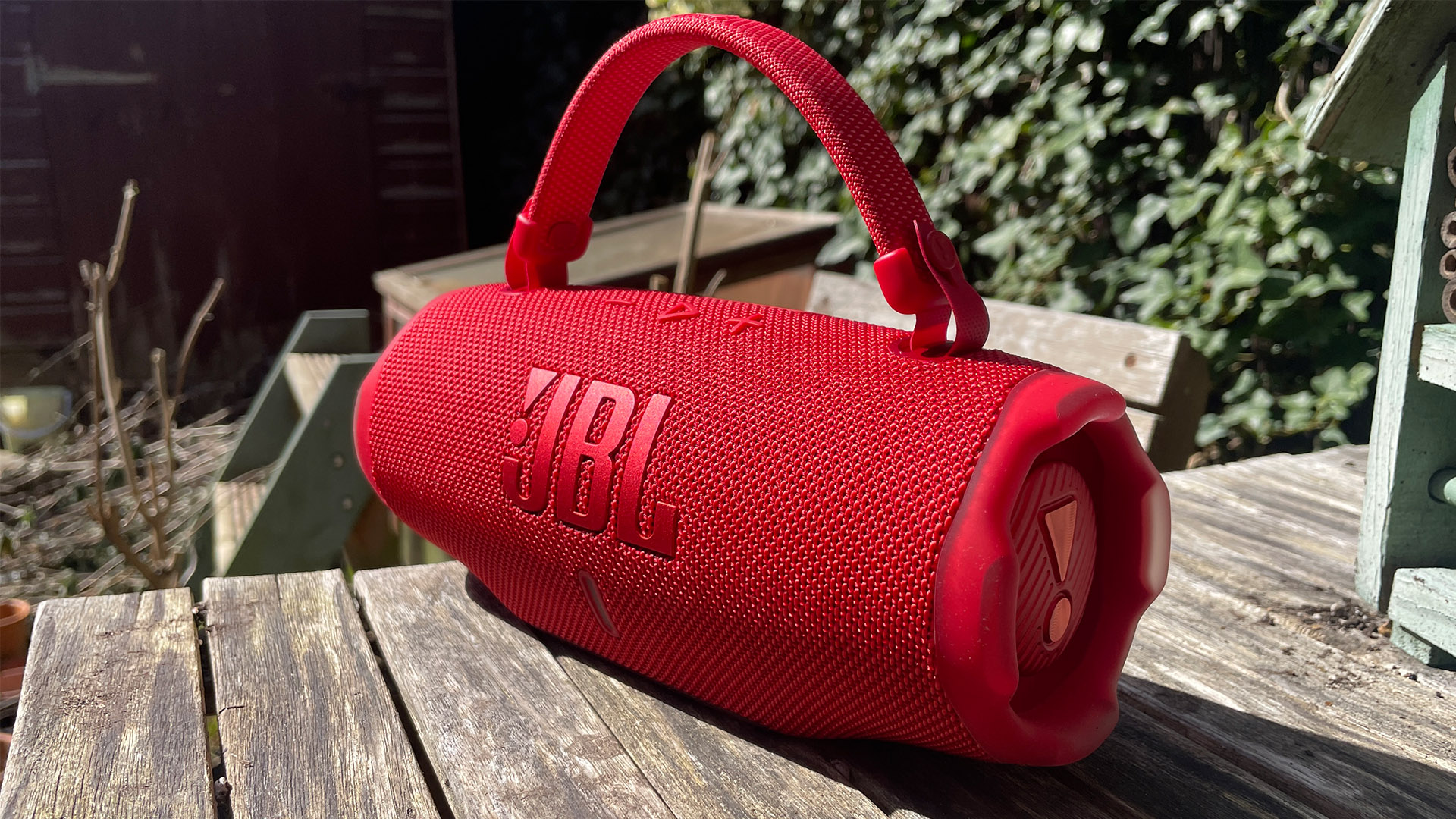
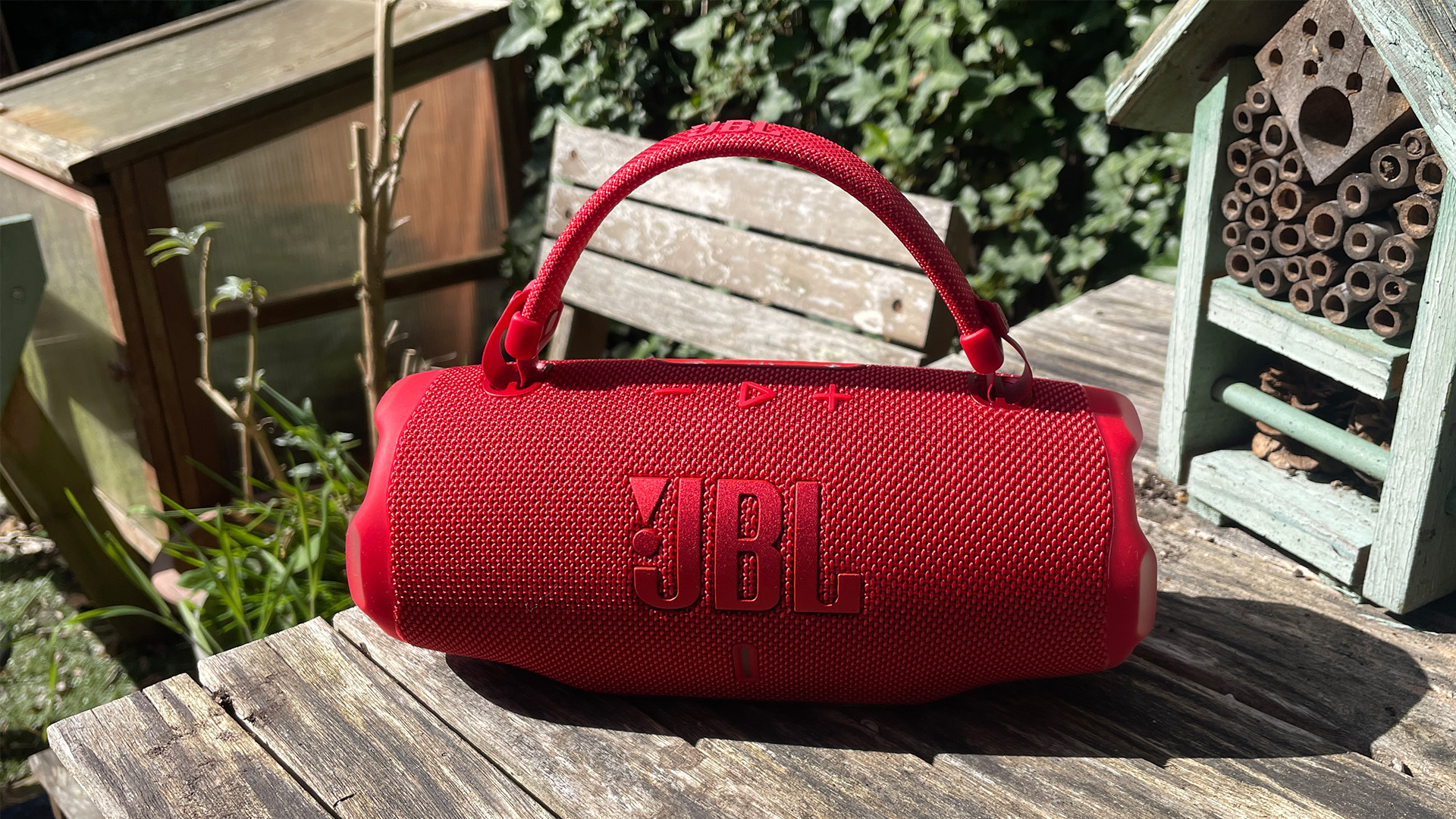
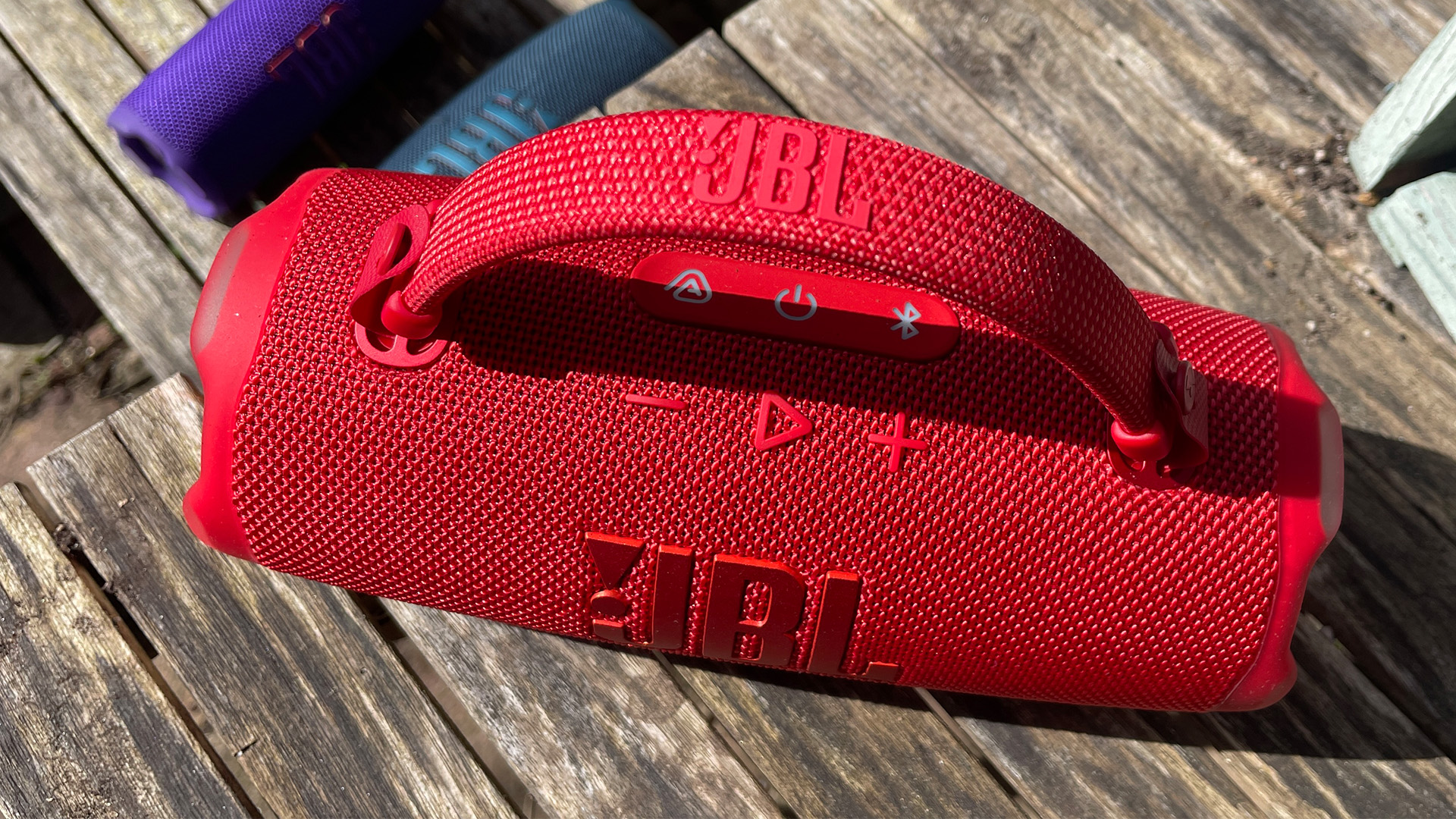
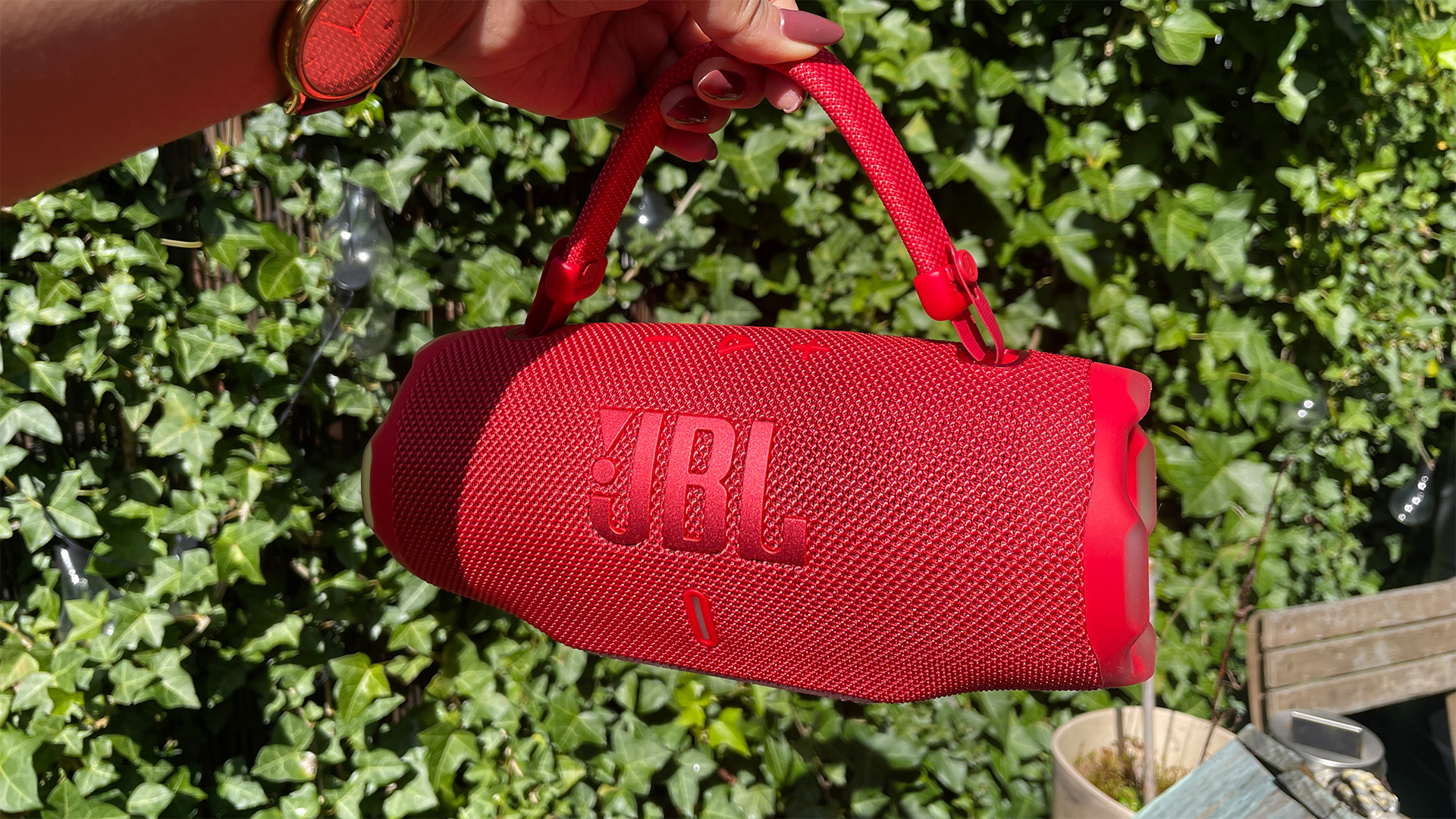
Specifications
Reasons to buy
Reasons to avoid
The JBL Charge 5 cemented its legacy as one of the greatest Bluetooth speakers we've ever tested, wowing us with the quality of its sound and its impressive longevity. After multiple What Hi-Fi? Award wins, JBL's evergreen icon is still on the market, but now that it's been succeeded by a sixth-generation model, it soon may ride off into the sunset and enjoy a well-earned retirement.
Happily, the Charge 6 is ready to take up the mantle. It's now even more waterproof, dustproof and drop-proof than before, with an IP68 rating (up from the Charge 5’s IP67) and beefier bumper guards at either end of the unit.
Internally, the Charge 6 features a 20m tweeter and a newly developed woofer that strives for deeper and more powerful bass than before. A new algorithm-led ‘AI Sound Boost’ analyses the speaker's sound in real time to optimise its output and ensure that a more powerful and exciting but less distorted sound is produced at all times and in all places.
It's all paid off, though. As our review makes clear: "The Charge 6 certainly sounds more powerful, but that muscle and authority are heard throughout the frequency range, not just in the lower end. The sound is clearer and more detailed than before, with vocals given extra solidity and textural depth; the highs soar with punch but clarity".
JBL has made a concerted effort to make its new generation of speakers as cutting-edge and feature-heavy as possible, packing its latest models with Auracast audio sharing and 24-bit/96kHz lossless audio via USB-C.
On top of those handy boons, the Charge 6 also offers 24 hours of juice plus four extra with Playtime Boost, as well as doubling up as a powerbank for your smartphone or portable device.
A great sequel to a legendary speaker.
Read our full JBL Charge 6 review
Best portable outdoor speaker

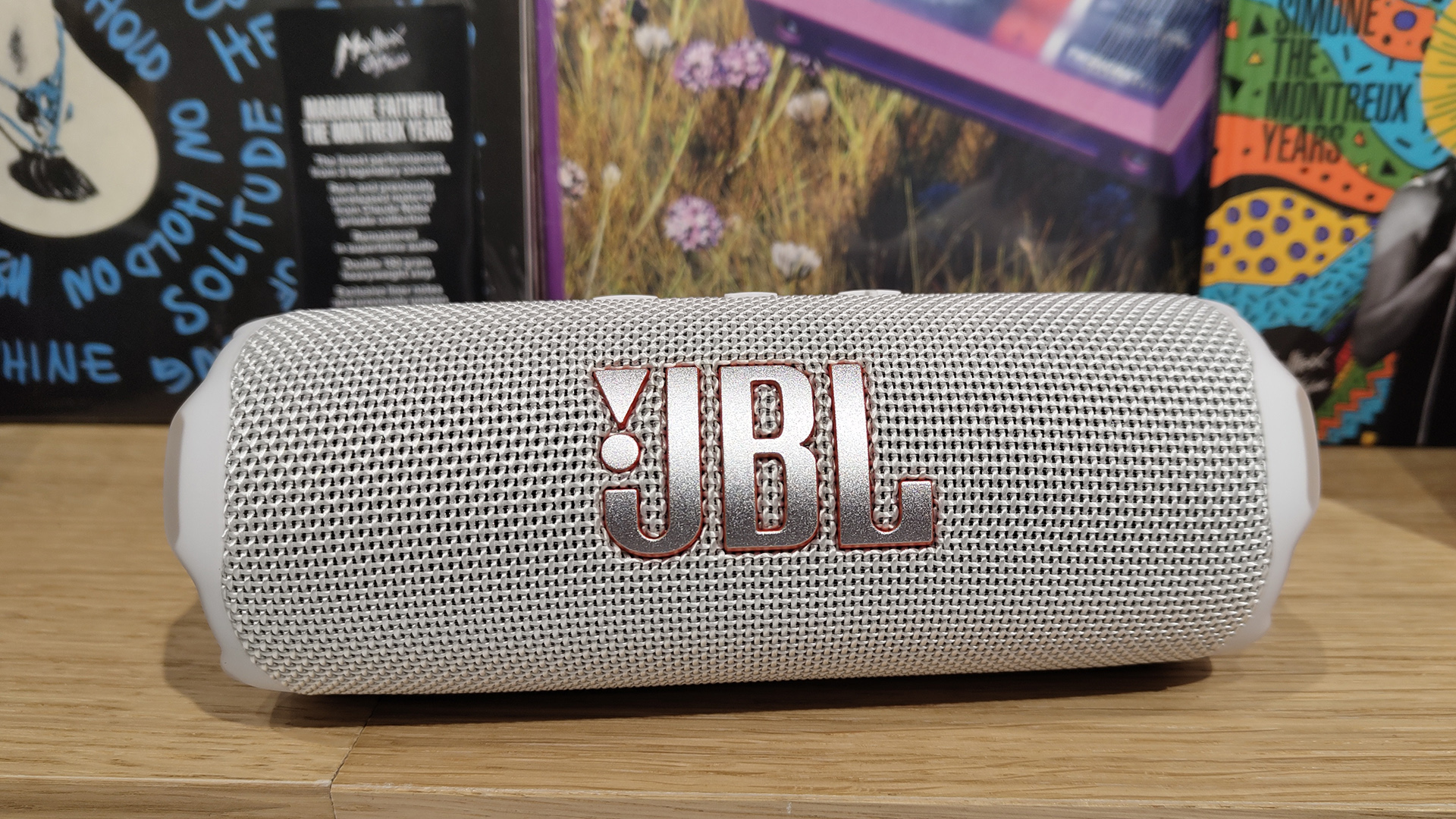
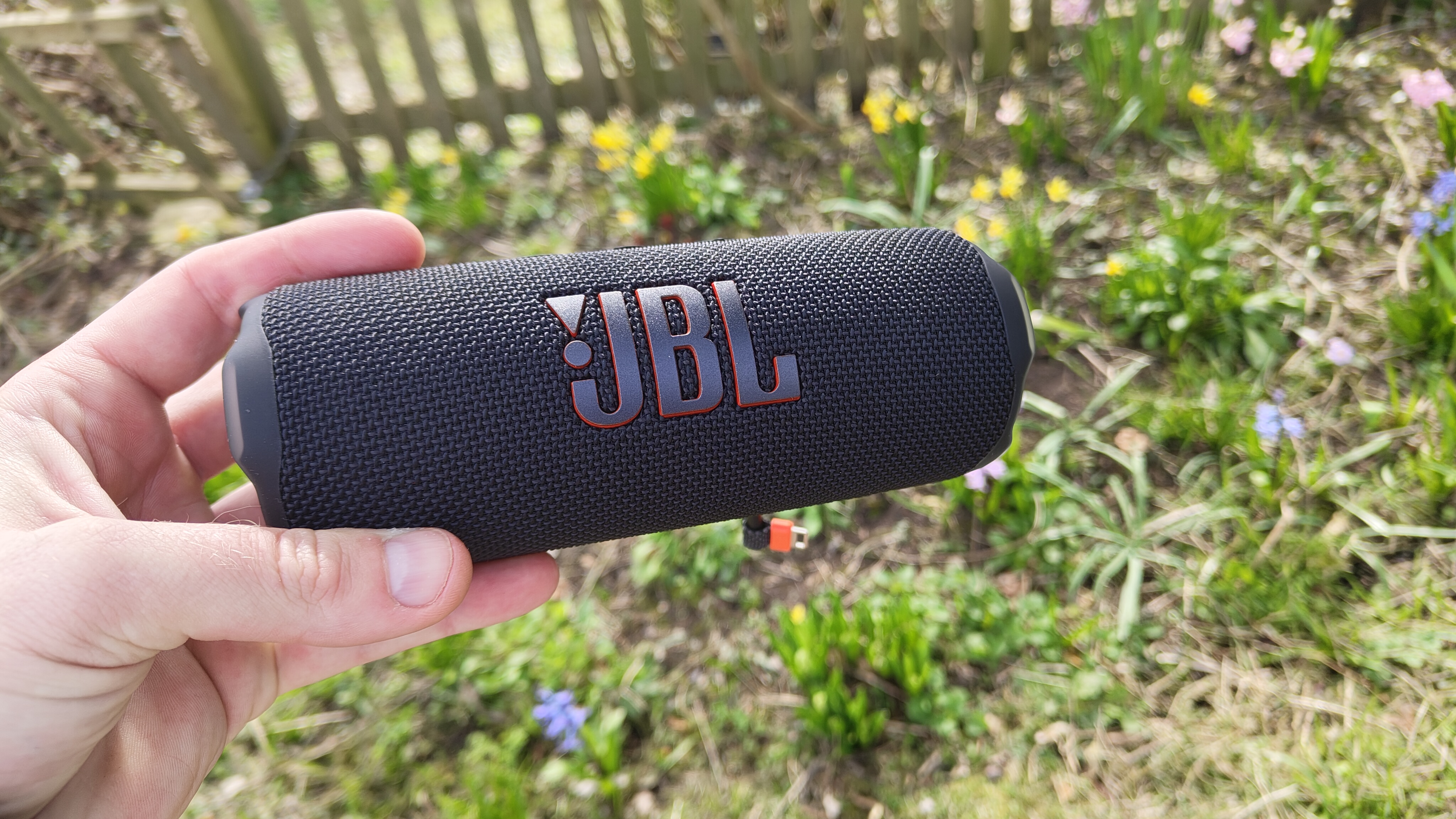
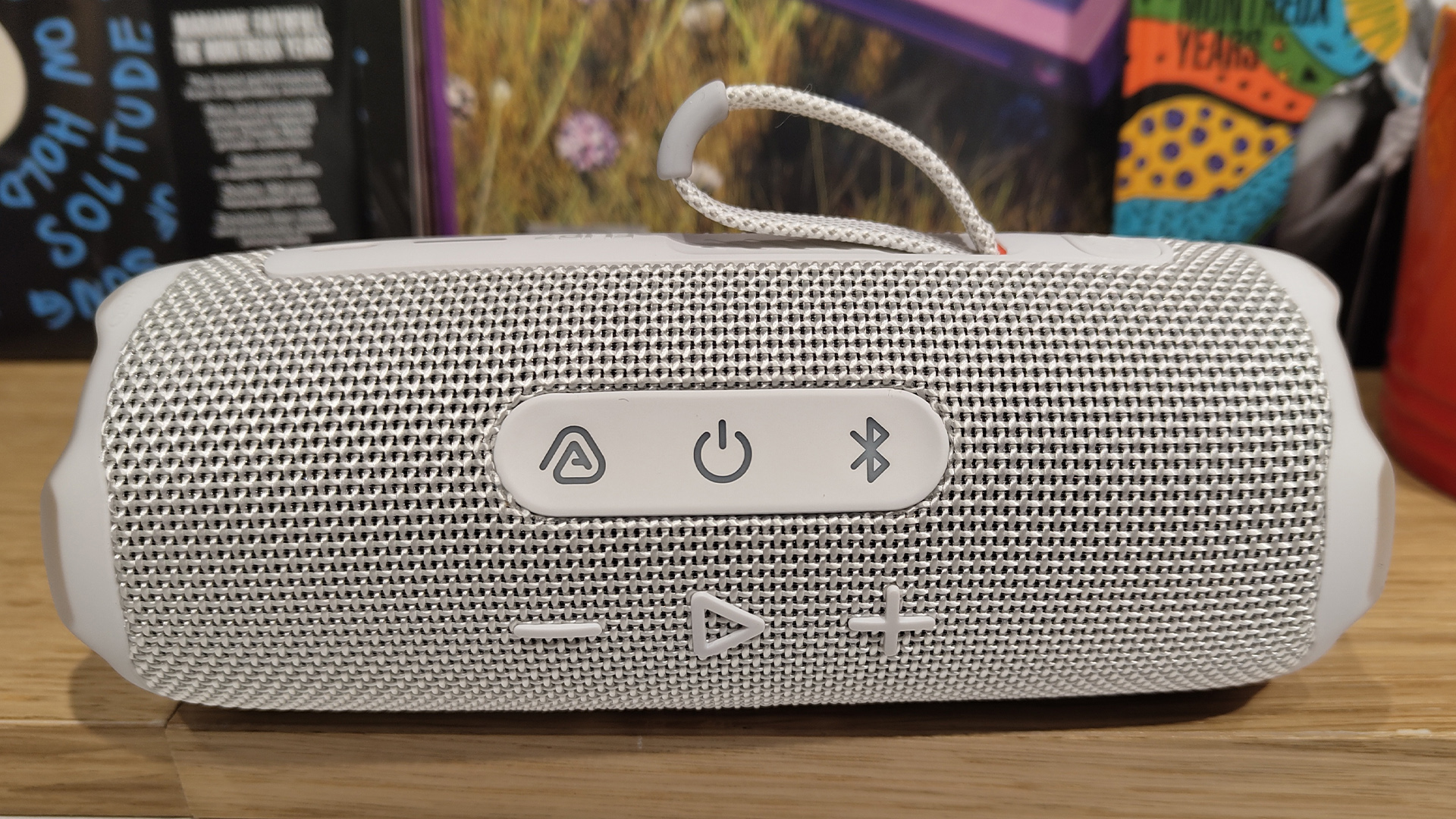
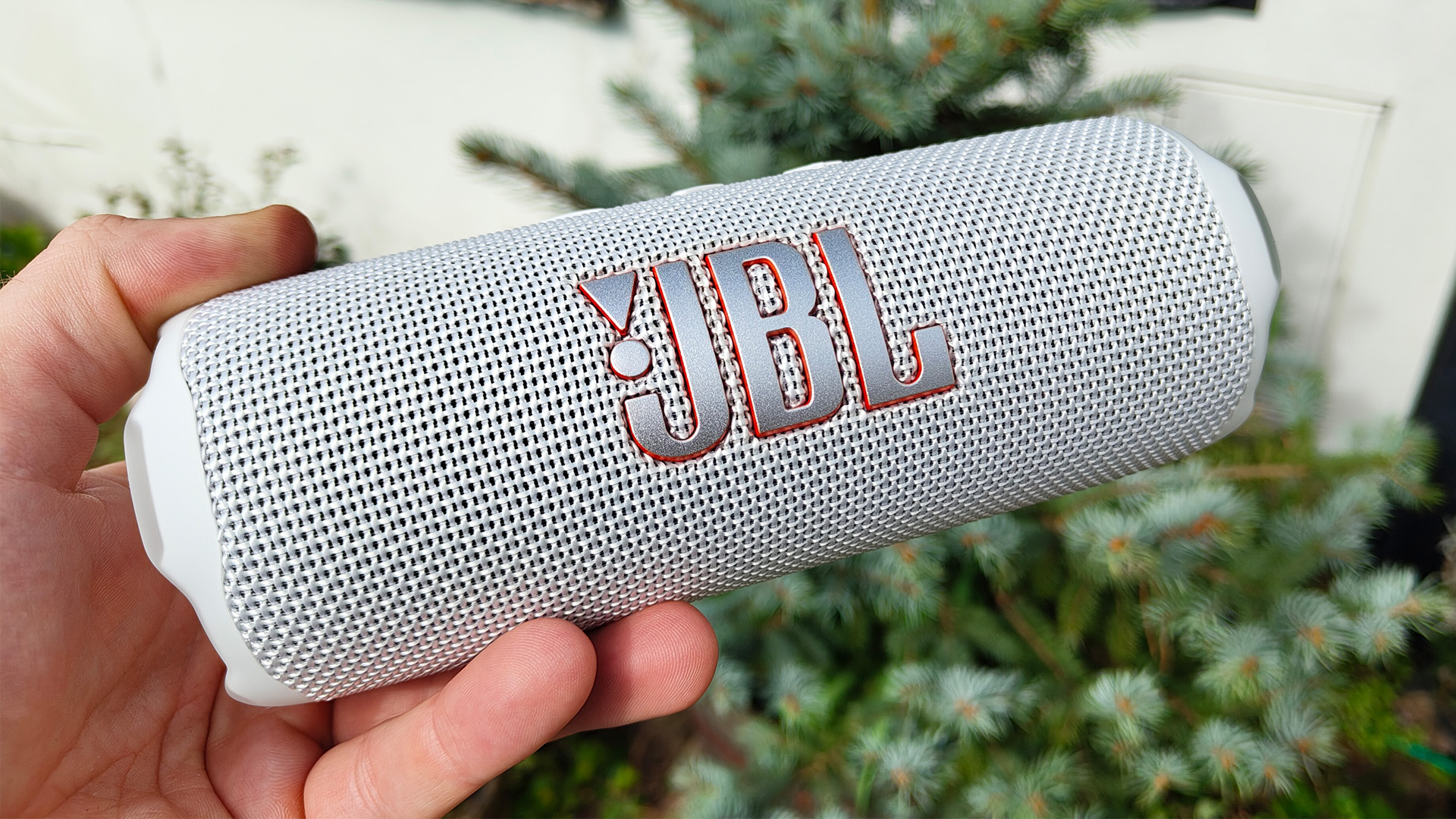
Specifications
Reasons to buy
Reasons to avoid
Anyone who finds the price or size of the Charge 6 a little too much should consider the five-star JBL Flip 7. Smaller, slimmer and less expensive, the Flip 7 still offers a great deal of what you'd want in a waterproof Bluetooth speaker.
The previous model boasted a still-impressive IP67 water and dustproof rating, but JBL has upped the ante by bestowing a mighty IP68 certificate upon this newest iteration. Rain or shine, the Flip 7 will handle the elements with ease.
Dropping the built-in adjustable carry loop of its antecedent, the Flip 7 offers a choice of either a fabric finger loop or a carabiner hook for clipping the speakers onto the likes of nearby branches or your go-to backpack.
Just like the Charge 6 , the Flip 7 is packed with features. The seventh-gen Flip offers Auracast functionality, the new sharing technology which lets you pair two Flip 7s together in stereo or hook up multiple units using the JBL Portable app.
The seventh-gen Flip will furnish you with 14 hours on a single charge plus an extra two with Playtime Boost. The Flip 7 also features wired listening for the first time, supporting up to 24-bit/96kHz lossless audio playback via USB-C, meaning that it should sound its best when using a physical tether.
Sound-wise, this is the best Flip we've yet heard. It's bassier than before, with a smoother, more refined profile than the more hard-edged Flip 6 can manage. Detail levels are improved, while the dynamic peaks and troughs of your music are revealed with greater scope and scale.
A portable and waterproof powerhouse, the JBL Flip 7 could be a modern-day classic.
Read our full JBL Flip 7 review
Best budget outdoor speaker
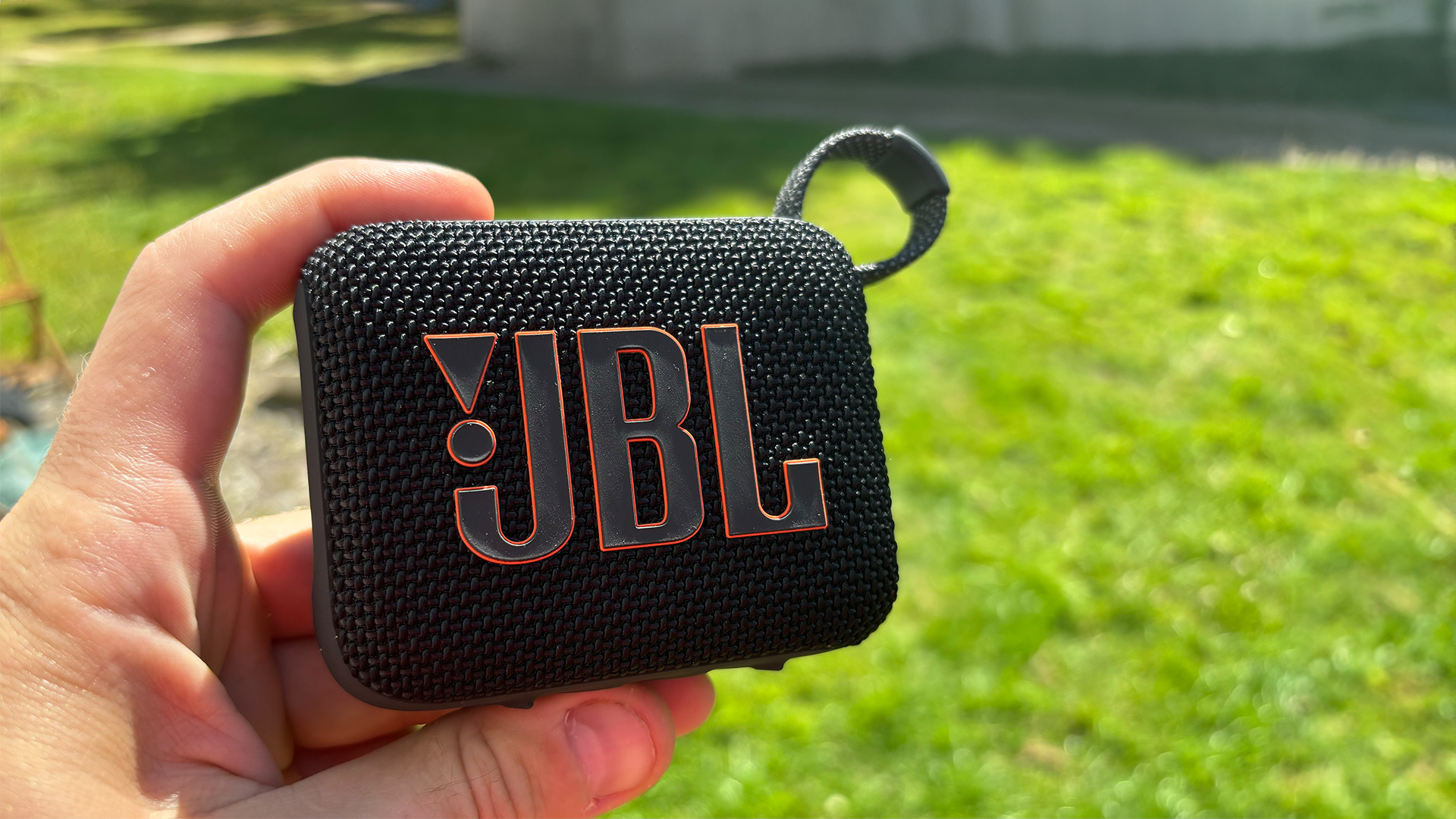
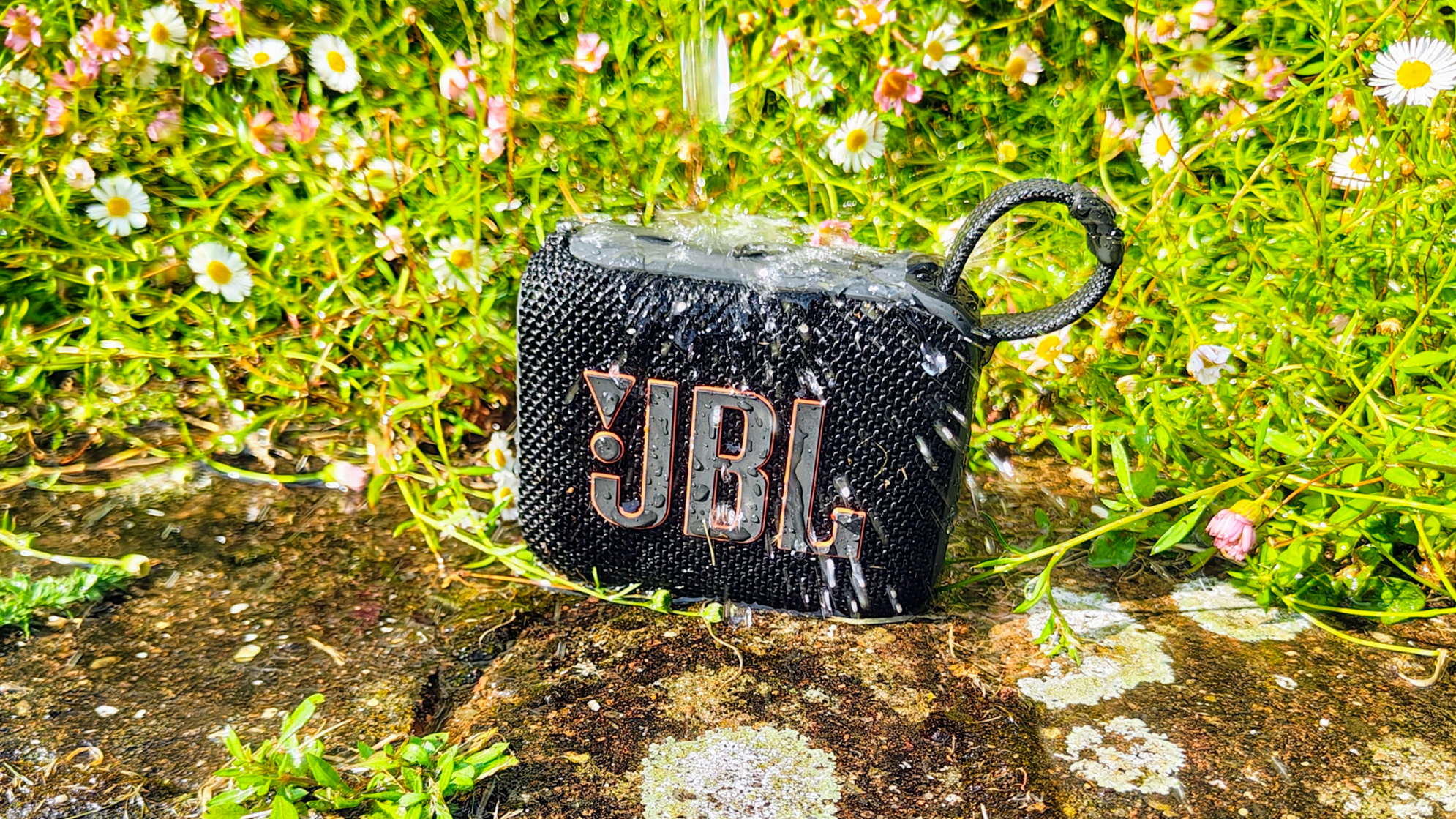
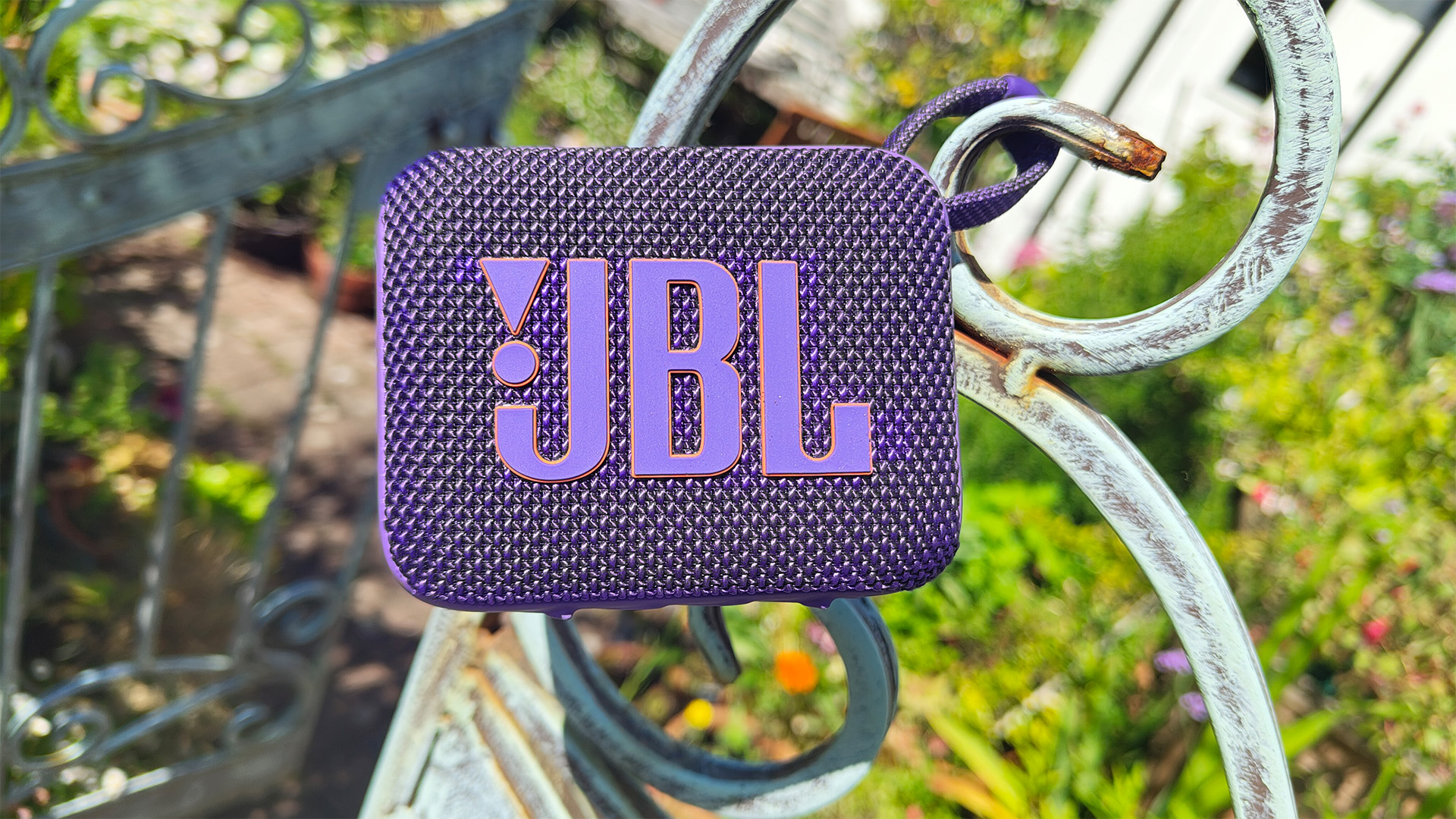
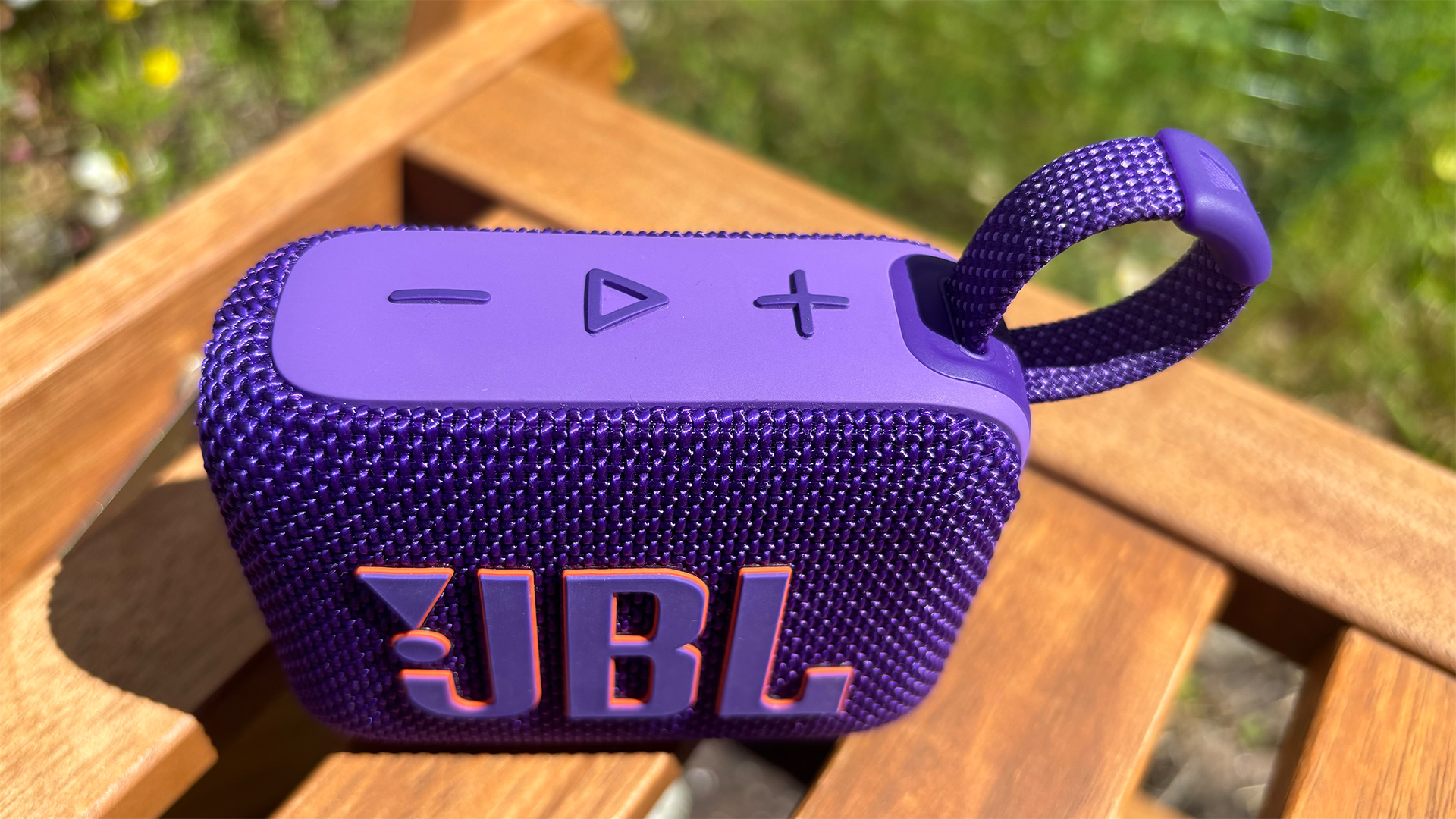
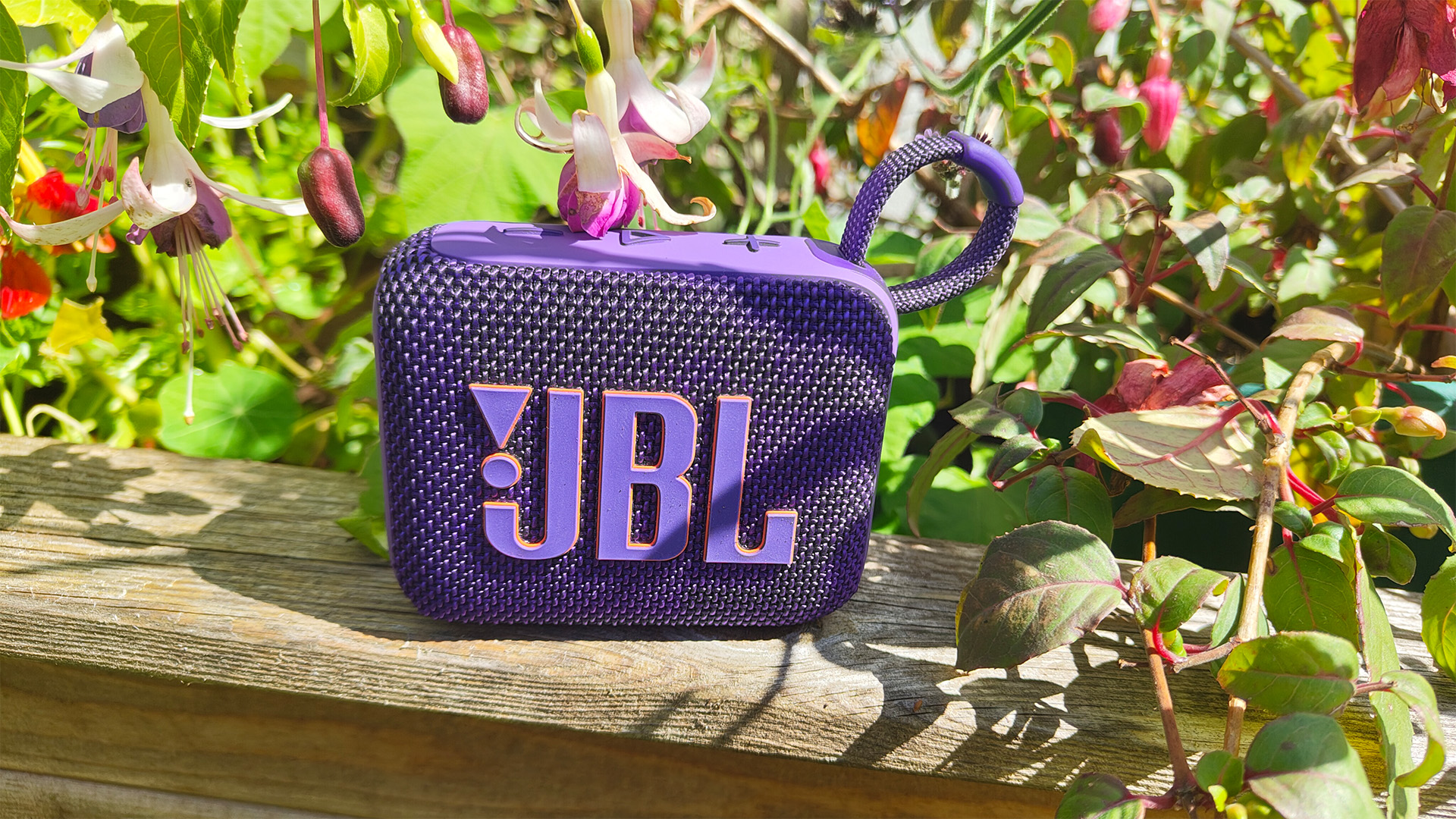
Specifications
Reasons to buy
Reasons to avoid
The JBL Go 4 is small and cute yet remarkably tough and tenacious. With the same form and dimensions as a chunky deck of cards or a standard bar of soap, the fourth-gen Go has been designed for portability and durability – perfect for cramming into a kit bag or backpack as you roam the wilds of your local park.
If you need something that offers more wallop and musicality than your phone's measly in-built speakers, JBL's dinky speaker is your best bet.
In a straight sonic competition with the best that your phone can handle, and quite a few larger Bluetooth competitors, the Go 4 is supreme.
It doesn't have the open, mature presentation of the crowd-pleasing Tribit Stormbox Micro 2 in our also consider section, but we're still so impressed by how the JBL's taut bass, restrained trebles and smooth mids combine to craft a marvellously coherent sonic picture.
Textures are revealed with clarity and character, but there's body and power to the music to which we're treated.
We weren't so happy about the outgoing Go 3's battery life only extending to a paltry five hours, but the fourth-gen sequel bumps those numbers up to seven hours as standard, plus an extra two with Playtime Boost.
Auracast lets you pair two Go 4s together in stereo or hook up multiple compatible JBL units, helping to future-proof the speaker as newer JBLs will likely be compatible with the current model. You even get app support, with a five-band customisable equaliser for getting your Go 4 sounding just how you like it.
For this price, the Go 4 is truly outstanding.
Read our full JBL Go 4 review
Best premium outdoor speaker
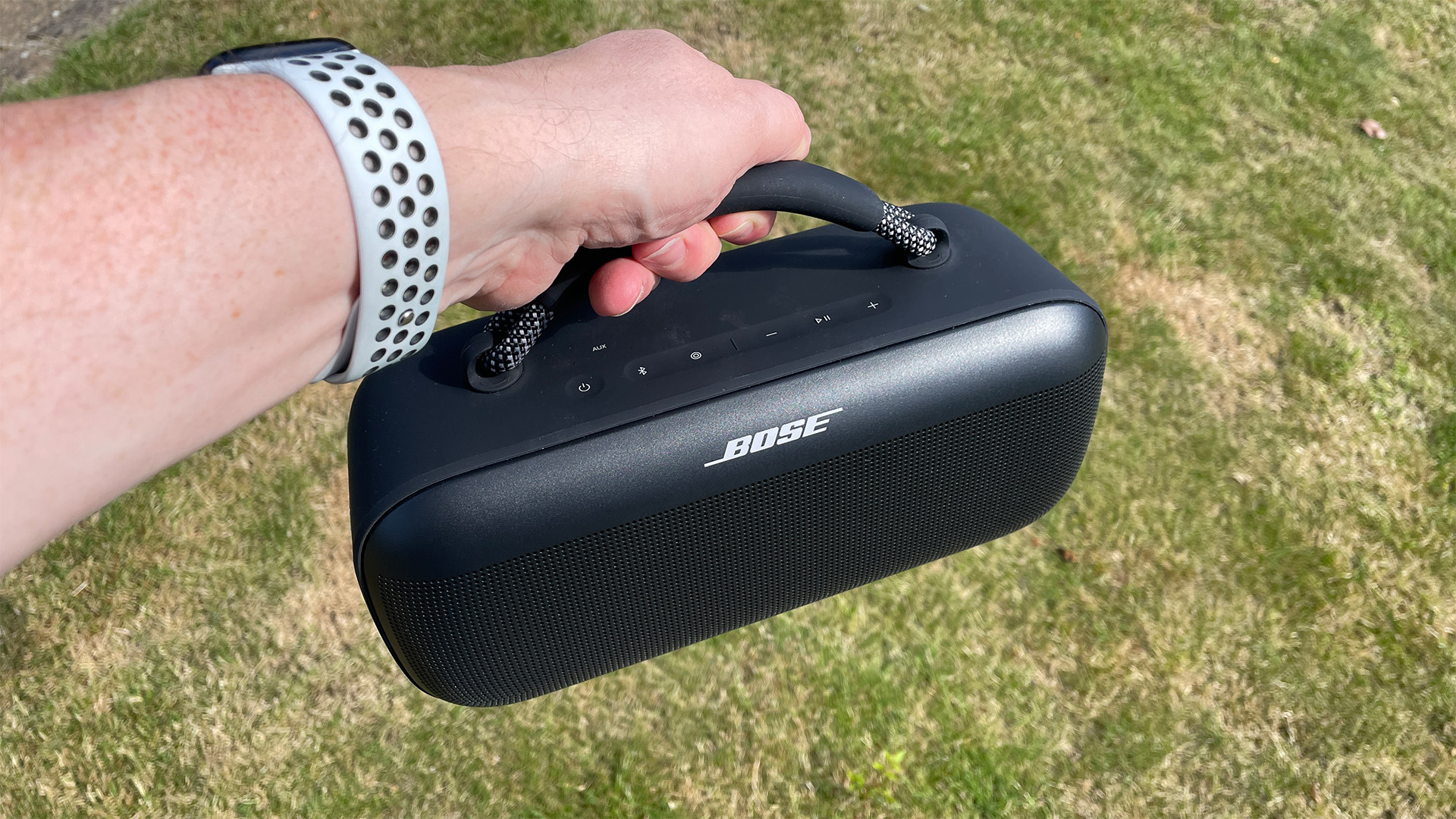
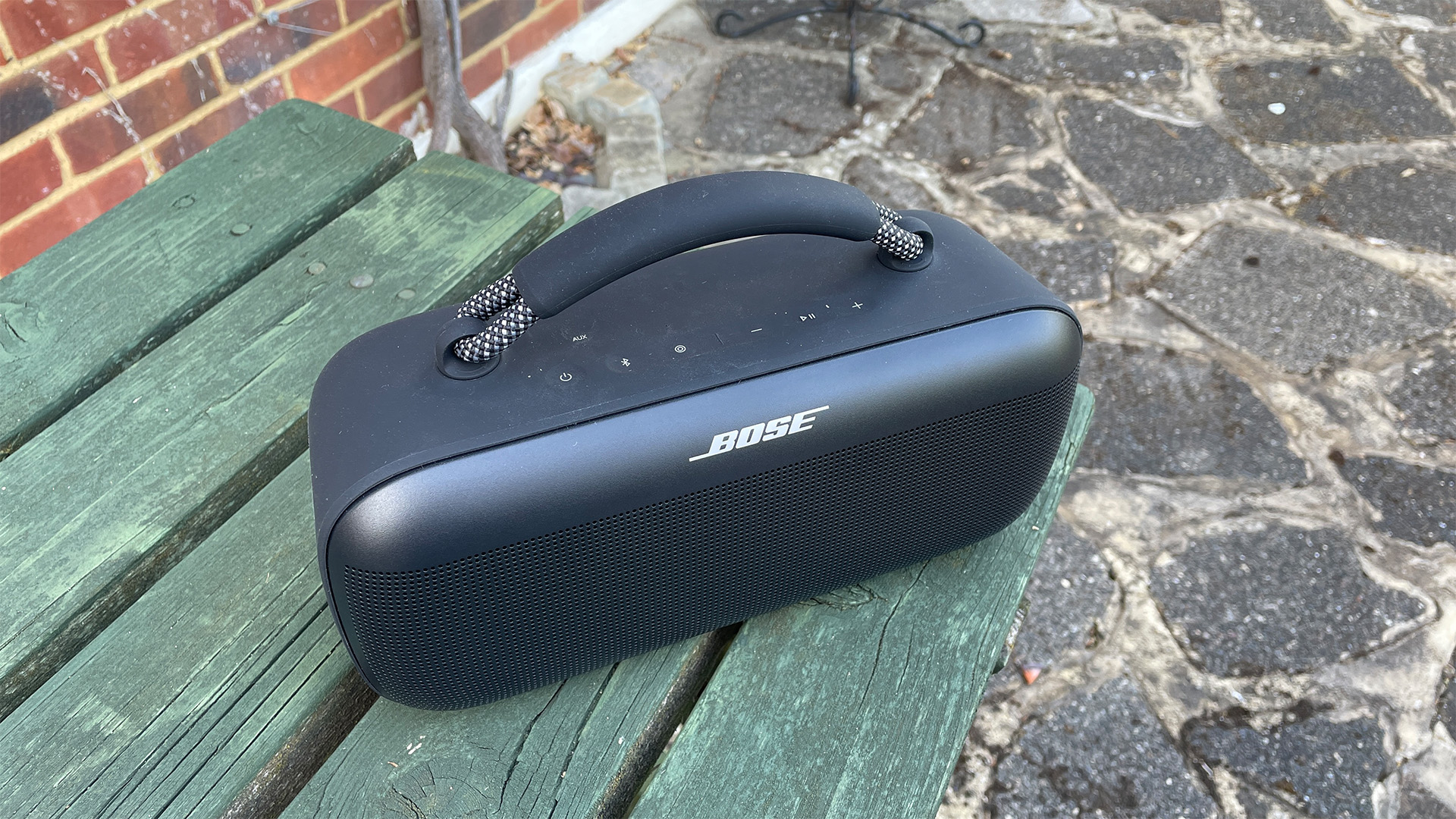
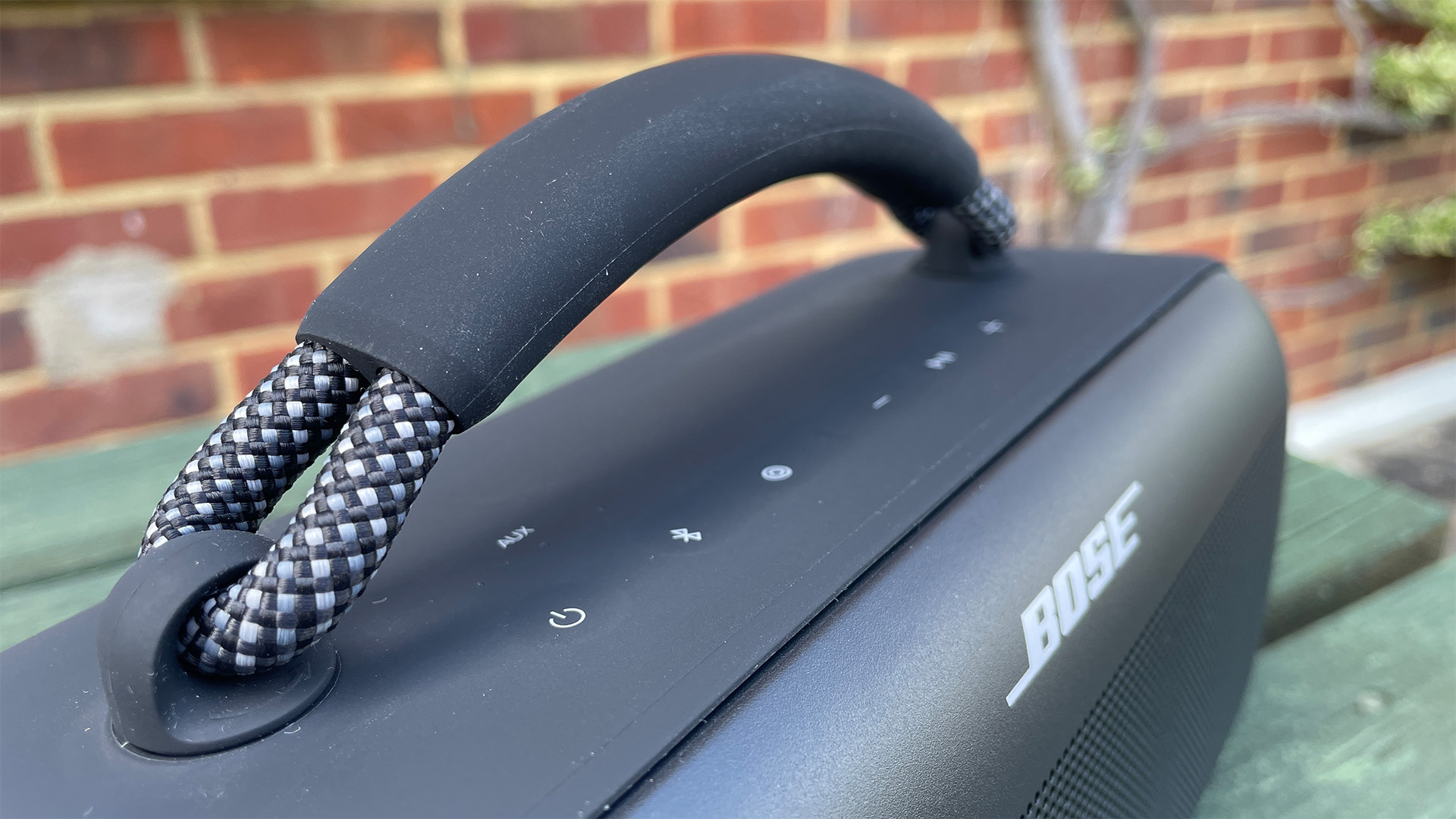
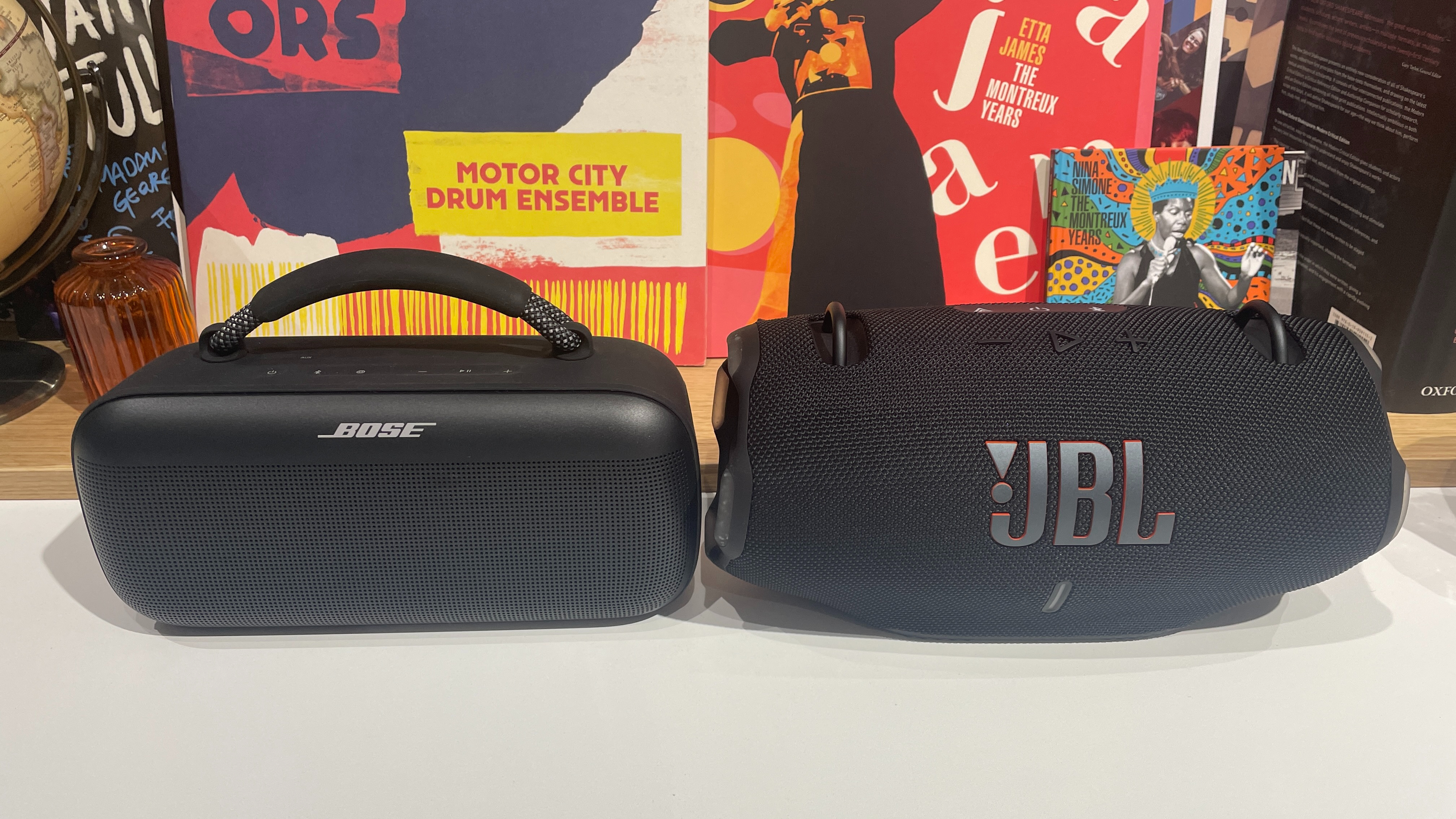
Specifications
Reasons to buy
Reasons to avoid
The JBL Xtreme 4 below is our pick as the best Bluetooth speaker at its price and for its type, but the Bose SoundLink Max isn't far behind. Across all major bases, it's an impressive speaker that, if you have the cash, will do a mightily impressive job of making park picnics sound great or keeping your guests entertained as you host your latest garden gathering.
The Max is built to go pretty much anywhere. It's water and dust-proof thanks to its IP67 rating, a reassuring level of protection which hasn't affected the aesthetic appeal of the burly Bluetooth unit.
The Bose is pleasingly tactile and rugged, with large sections of the main body wrapped in smooth-to-the-touch silicone, a material which also makes its way onto the reassuringly rugged carry handle.
The Bose SoundLink Max supports Bluetooth 5.3 and has a claimed range of 30ft (9m) for when you're out and about, while the speaker's 20-hour battery life is good enough to just about keep up with the 24 hours offered by the JBL Xtreme 4.
Like the Xtreme, you can use the Bose's built-in battery to charge an external device such as a smartphone or laptop, and if you want to keep things traditional, a 3.5mm auxiliary socket at the rear of the speaker is on hand for playing directly from your chosen source.
However you choose to play, the sound you'll receive won't leave you feeling underwhelmed. To quote our review: "The Soudlink Max shouldn’t have any issues getting the party started – thanks, in the main, to its lively, punchy delivery.
The speaker’s expressive midrange enthusiastically sprays out lead vocals, while every thwack of (a) drum kit is dispatched with force and vigour. There's an energy to the performance that is easy to tap into and makes for a hugely enjoyable listen".
Appealing to the eye and hugely likeable to the ear, the Bose SoundLink Max is an excellent premium offering. Plus, discounts are already intermittently dropping its RRP by significant chunks, so it's always worth holding out for a bargain if you're in the market.
Looking for something smaller but still rugged and entertaining to listen to? The Bose SoundLink Plus is well worth considering if portability and price are high on your agenda.
Read our full Bose SoundLink Max review
Best large outdoor speaker
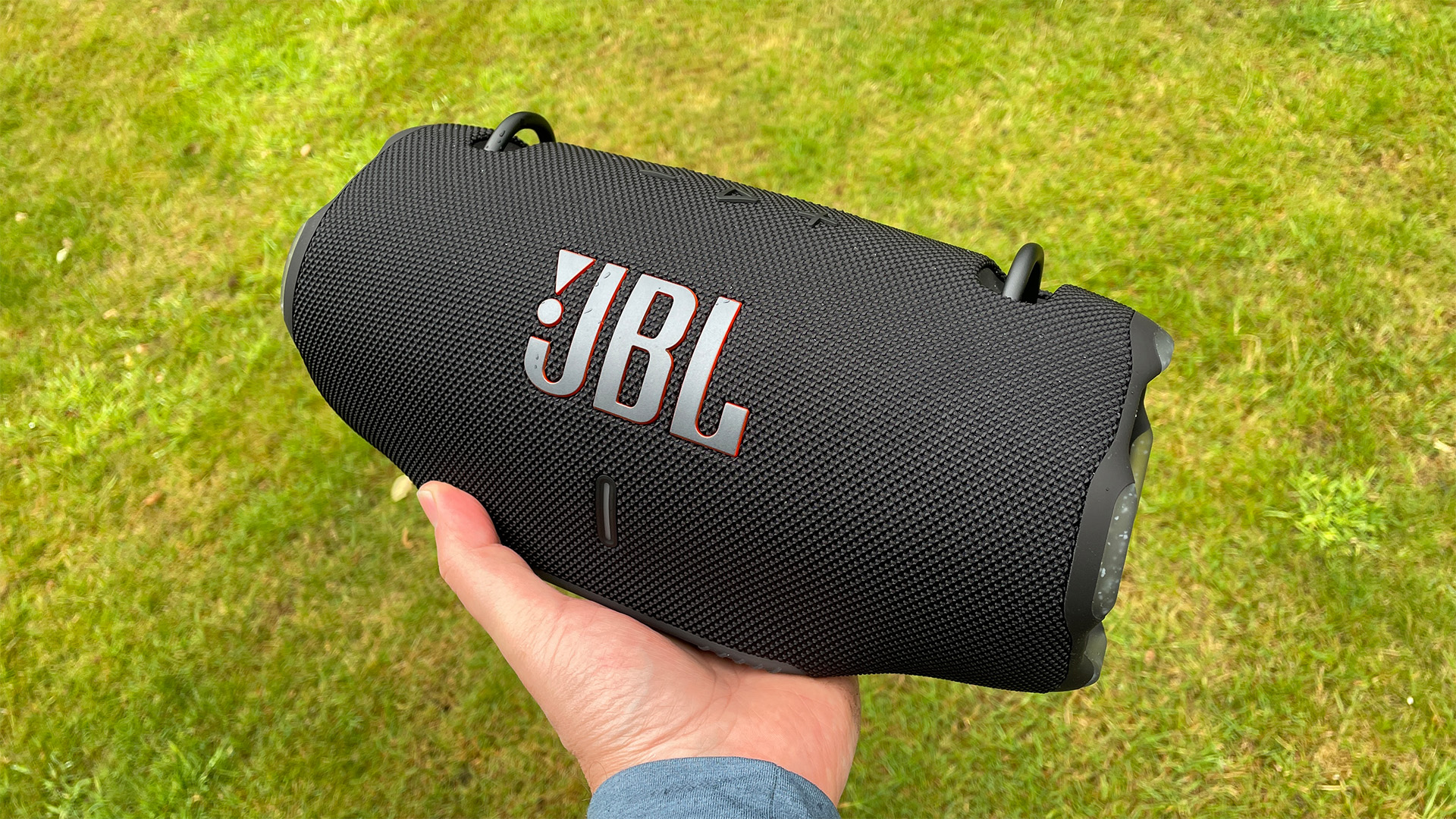
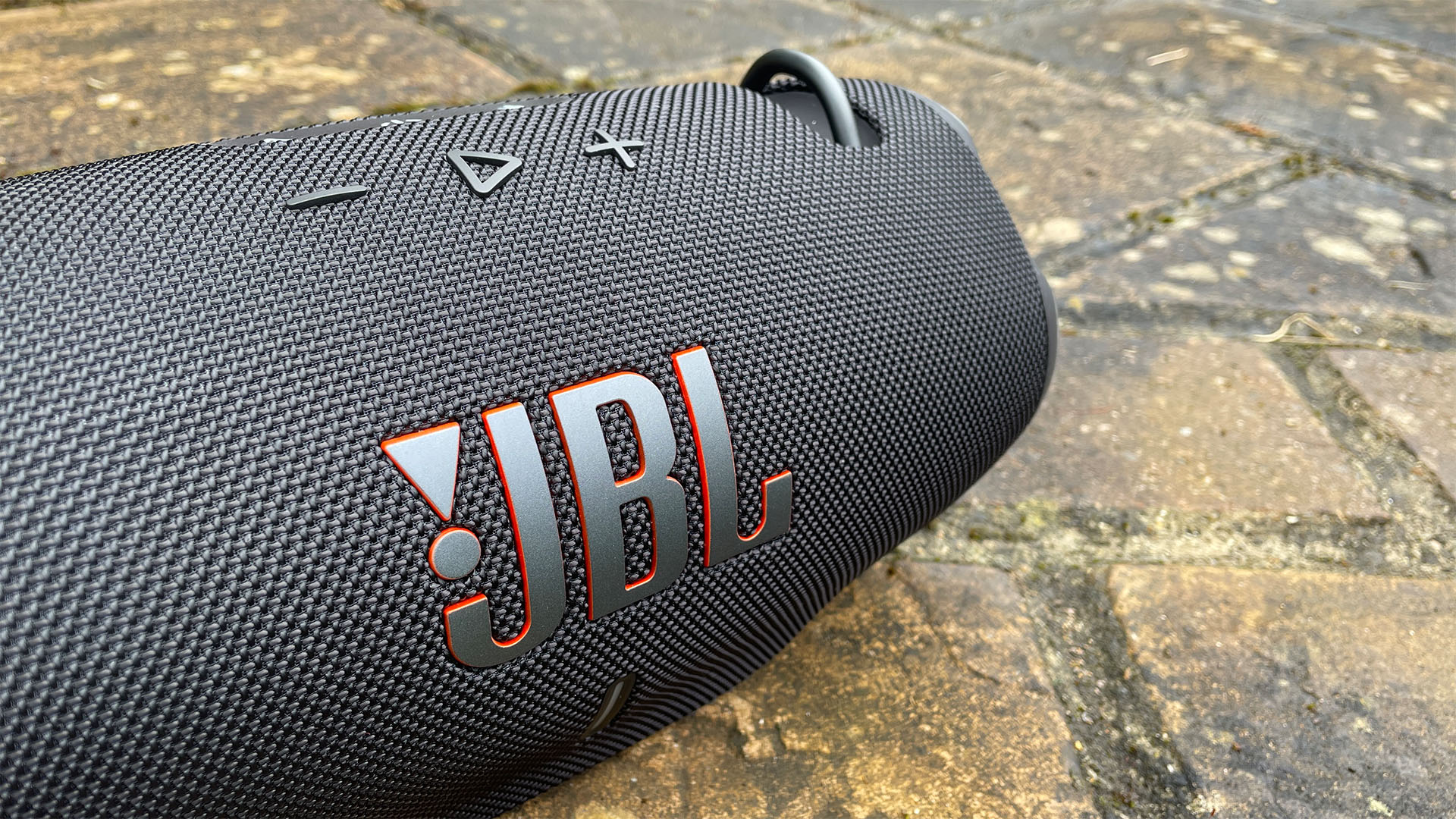
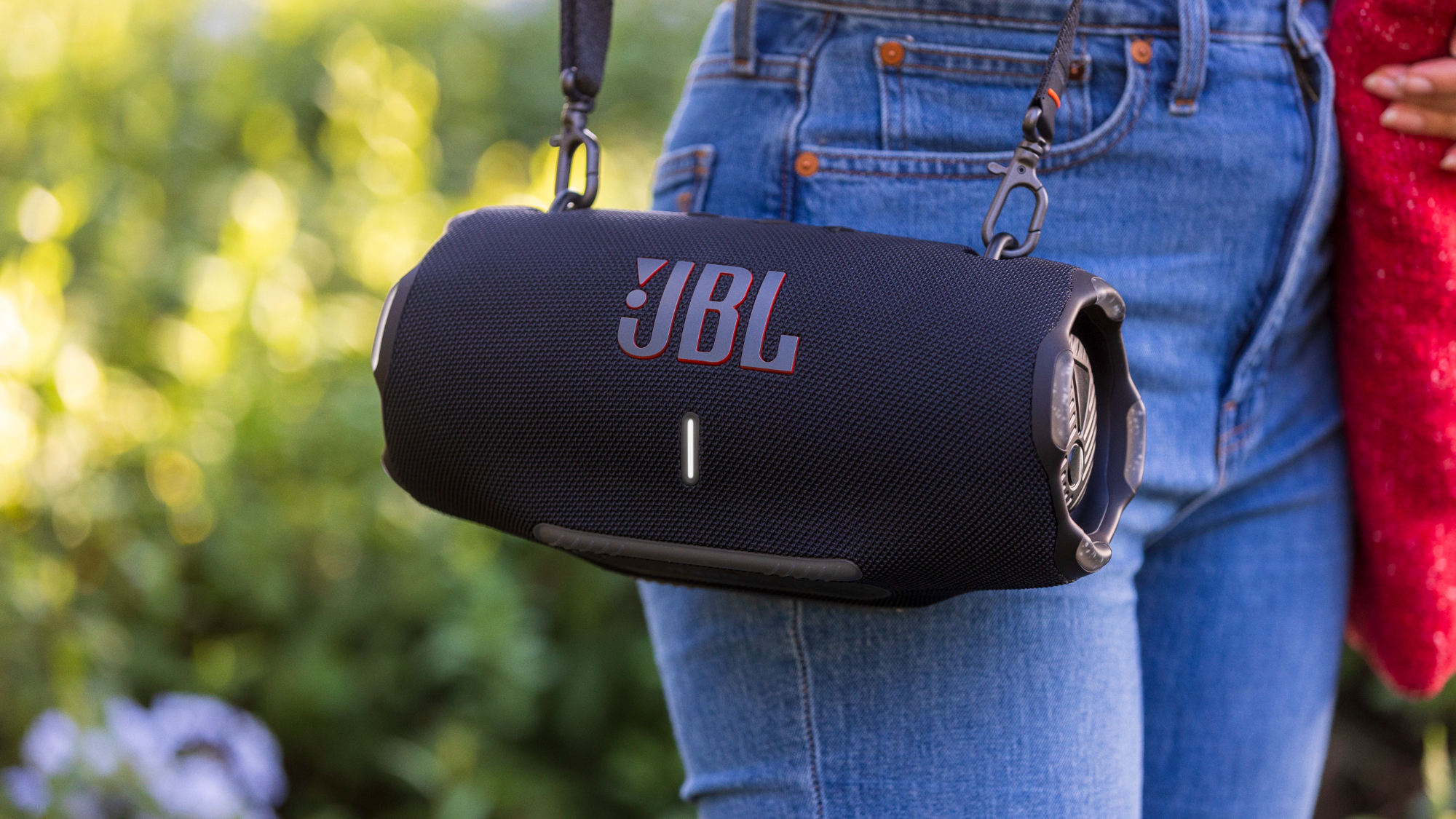

Specifications
Reasons to buy
Reasons to avoid
For tackling the outdoors with the best premium speaker, you really can't go wrong with the JBL Xtreme 4. The Bose SoundLink Max is an outstanding candidate at this price, but the all-around credentials of JBL's latest Xtreme make it almost impossible not to recommend. At this price, we feel that there's nothing objectively better.
Simply put, the Xtreme 4 is the Xtreme 3 but better. The design is roughly the same as the older model, albeit with some small distinguishing tweaks. The speaker's button layout is now a block of six rather than a linear strip, while a tweaked base with two strips of silicon feet grants more stability and grip to the ensemble.
Those changes aside, it's the same robust, IP67-rated build as the Xtreme 3, and that's no bad thing; this design has served JBL exceedingly well in the past.
The Xtreme 4's driver configuration is the same as the previous model, with two 70mm woofers and two 20mm tweeters behind the grille and those pulsating radiators housed at either end. Sonically, things have been taken up a notch, offering up the best audio performance we've heard at this price to make one of the best-sounding Bluetooth speakers of 2024.
As our review enthused: "For such a chunky speaker it produces a fantastically refined sound. It produces a wonderfully clear and consistent sound across tracks: low frequencies are poised and punchy but don’t lack weight, (whereas) highs are crisp enough so they don’t feel rolled off".
New features further enhance the Xtreme 4's credentials. Auracast is the big one, letting users pair two Xtreme 4 speakers together in stereo or connect multiple compatible JBLs in a chain.
It also gives the new model some element of future-proofing should additional features that require the tech emerge in the coming months.
The JBL app is as user-friendly and comprehensive as ever, whereas 24 hours is a big improvement on the 15 hours of the previous model. Like the Charge 5, the Xtreme 4 will charge up connected devices via USB-C, and there's even a replaceable battery if the built-in unit gives up the ghost.
All in all, an outstanding outdoor speaker from JBL. If you've got the cash to stretch further up the price ladder, the Xtreme 4 is the speaker to go for.
Read our full JBL Xtreme 4 review
Best multi-room outdoor speaker
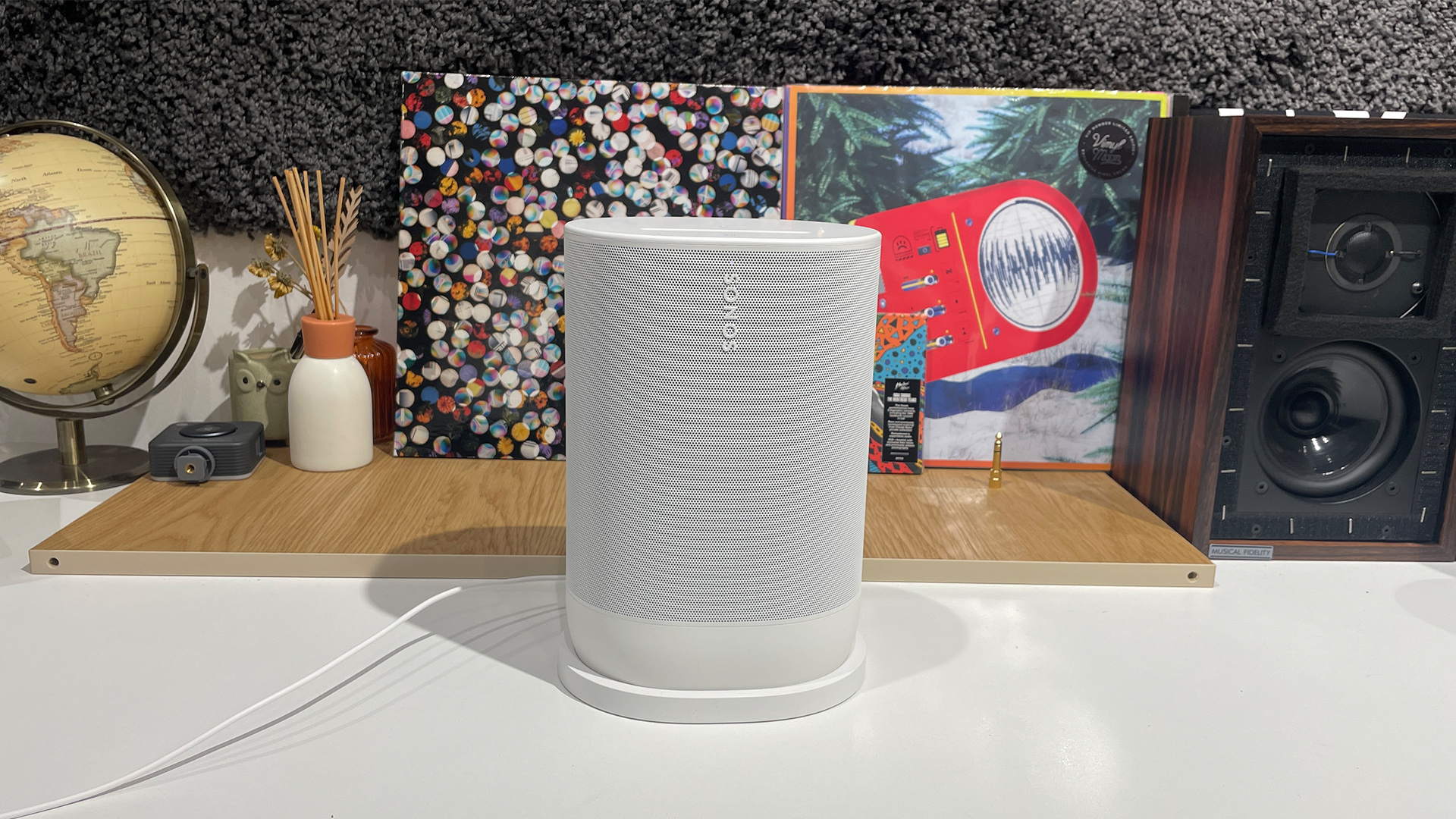
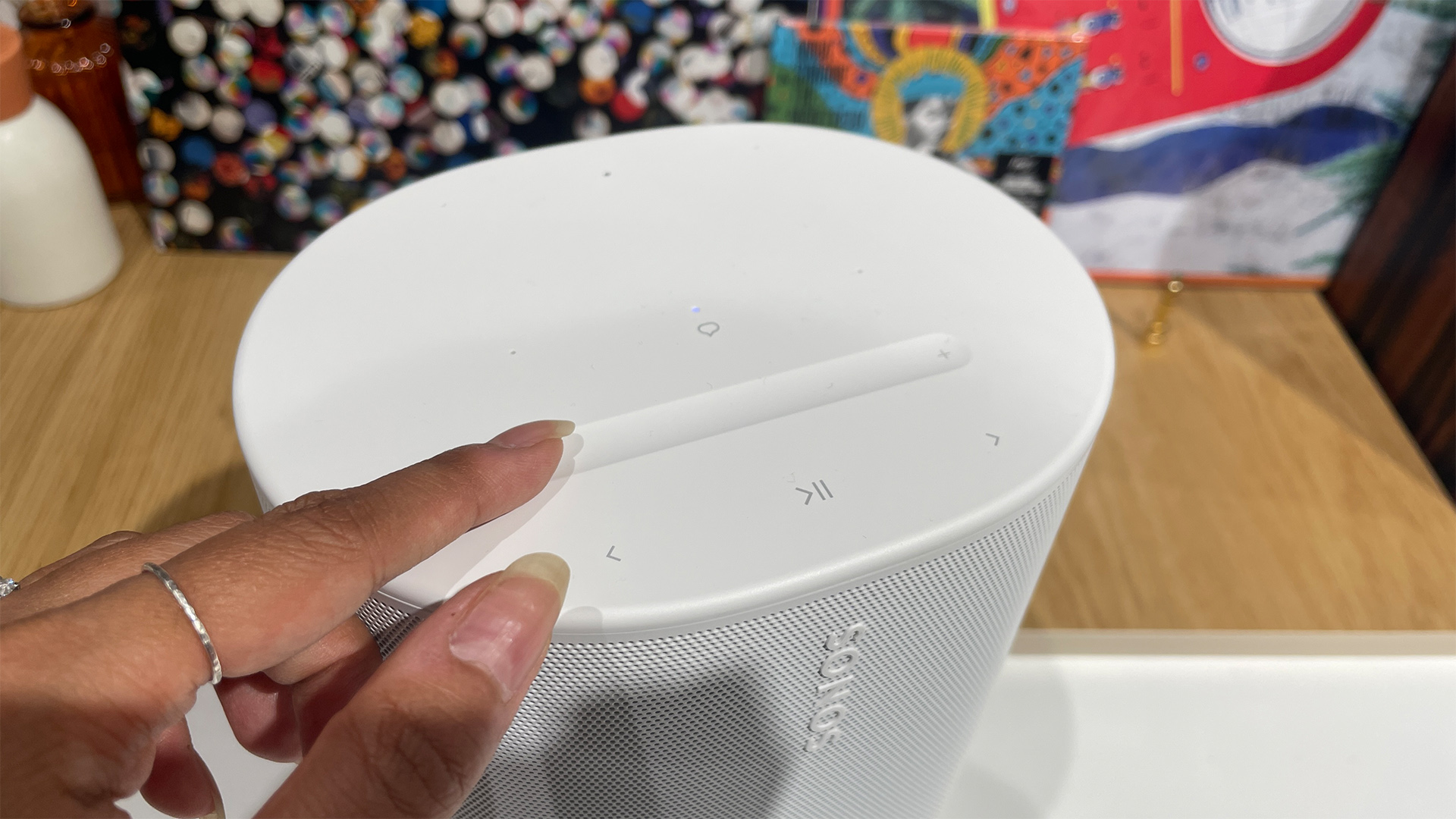
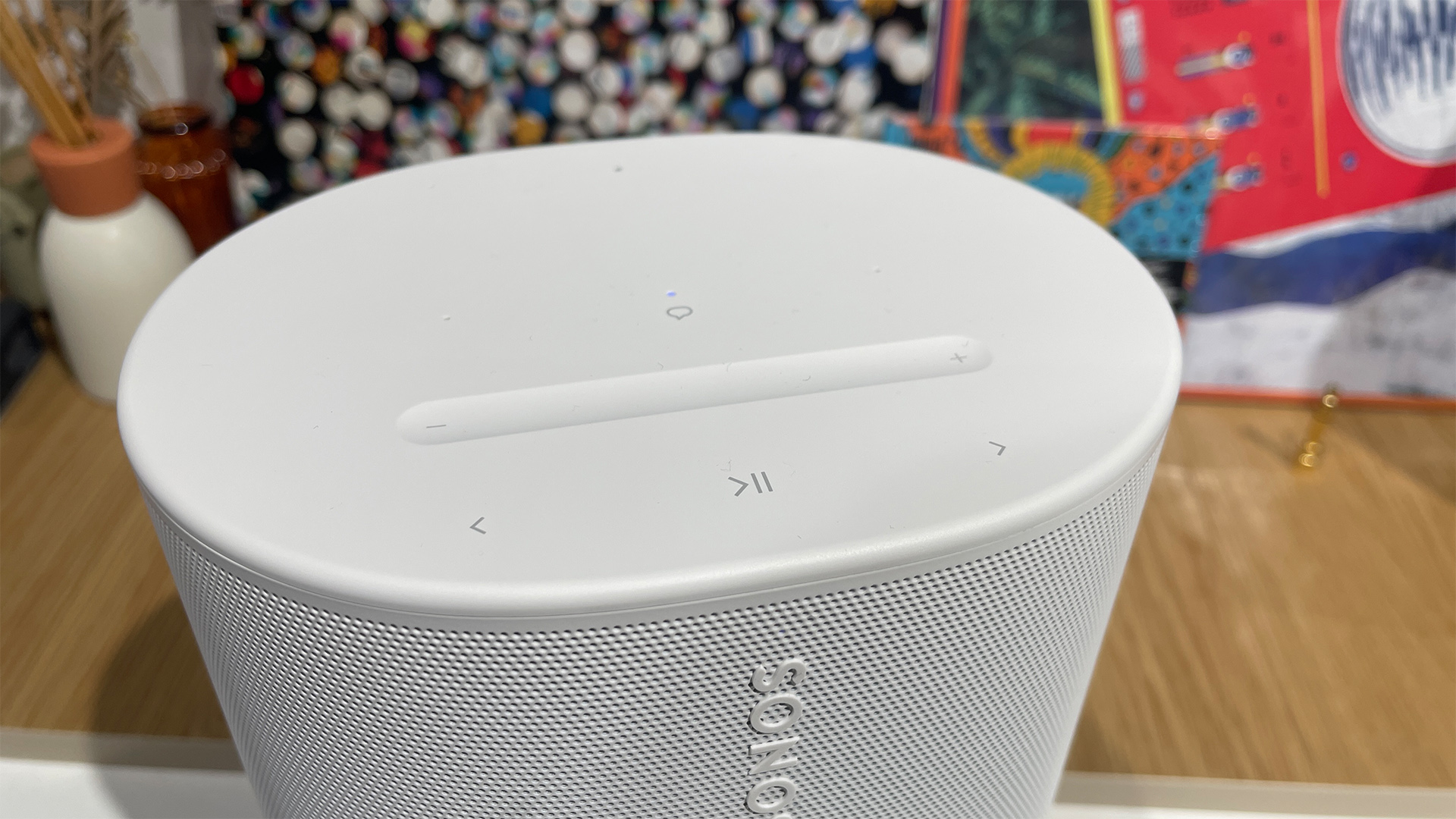
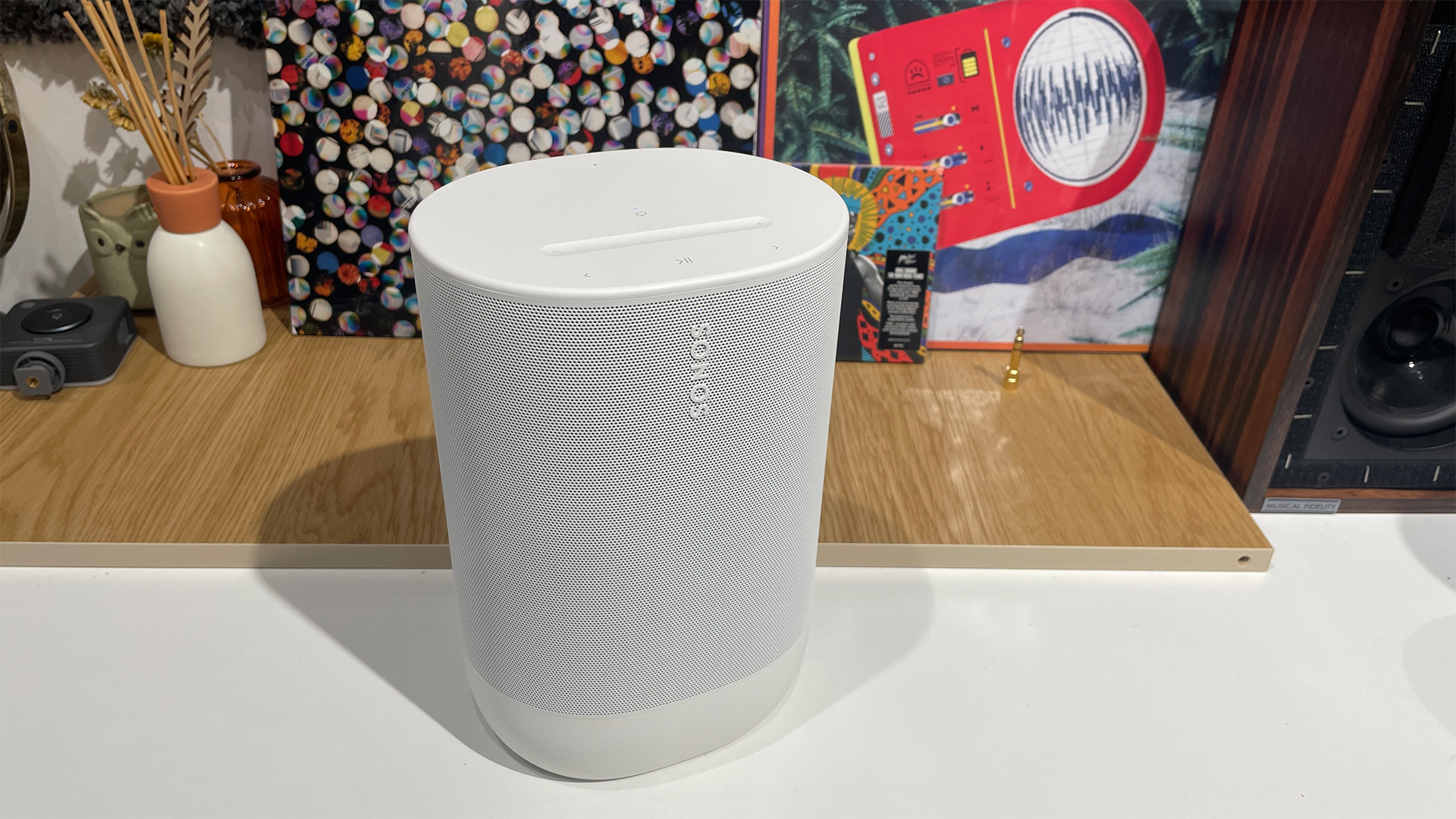
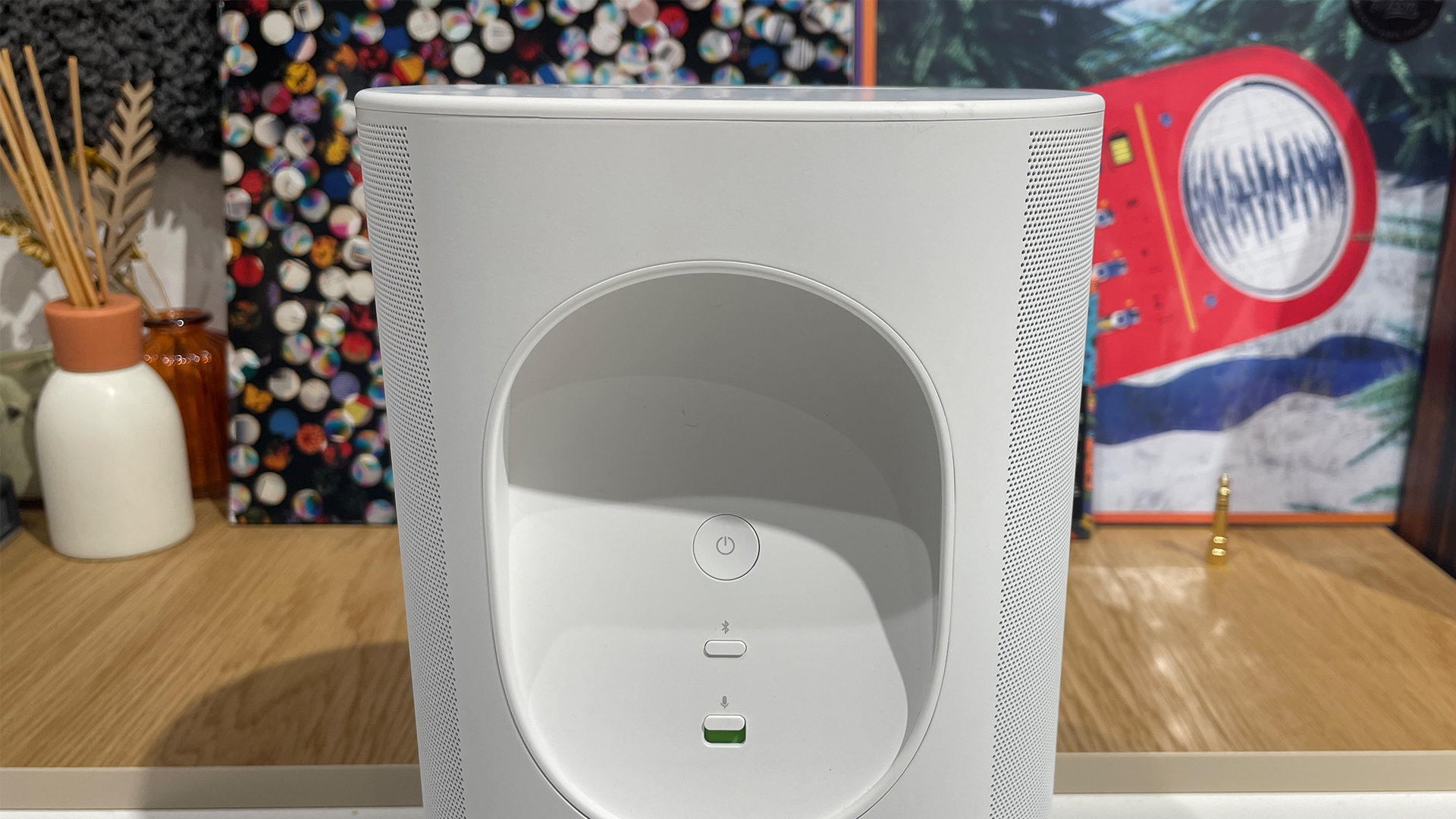
Specifications
Reasons to buy
Reasons to avoid
Just by virtue of being a Sonos speaker, the Move 2 has serious appeal to a certain kind of customer. For anyone embedded into the Sonos way of life (and there are quite a few of you), the Sonos Move 2 is an attractive bridge between your integrated home setup and your outbound adventures.
The Move 2 is a big boy. The vital statistics see it measuring 24.1 x 16 x 12.7cm and weighing 3kg, and though you won’t be able to sling it into your bag or backpack, the Move 2’s substantial size fits its purpose to deliver a much bigger and more powerful sound both inside and outdoors.
The Sonos sports dual-angled tweeters alongside a single woofer and a Class D amplifier for each driver, while custom waveguides also help to direct the frequencies more adeptly.
We lamented the lack of any higher-quality codec in our first-gen Move review, so it's frustrating that Sonos didn't include support for the likes of aptX HD or LDAC.
Still, there’s support for streaming in up to 24-bit/48kHz quality over wi-fi you’re an Amazon Music Unlimited or Qobuz subscriber, or if you prefer the wired route, you can now connect external audio sources to the Move 2’s USB-C connection, although bear in mind you’ll need a specific and separate line-in adapter.
More conveniently, you can charge your smartphone using this USB-C port and a standard USB-C cable.
Sonos made a step up in clarity and sophistication with its Era speakers last year, something we were pleased to find had spilt over to the Move line. The large sonic spread underpinned by powerful heft and weight is hard to ignore, but it’s accompanied by a sound that’s nicely balanced, clean, detailed and easy to listen to.
We still feel that you'll get a more nuanced, rhythmically adept sound from rivals such as the Dali Katch G2 or JBL Xtreme 4, but the Move 2 is a long way off being an underwhelming listen.
Read our full Sonos Move 2 review

We've said it before and we'll say it again: don't immediately dismiss four-star products. There are plenty about – the Beats Pill, the Bose SoundLink Plus etc. – that won't be for all buyers but might give you that one element you've been searching for. As a case in point, the Move 2 has its issues, in that it's a bit of a niche item that doesn't quite reach the sonic heights of some of its rivals. That said, it's great for Sonos users, it's nicely made and it may be ideal for someone looking to bridge the gap between an indoor and outdoor speaker. Plus, prices are coming down as time wears on, somewhat nullifying our original criticism of its high price tag.
Also consider
Beats Pill: The return of the Beats Pill has been a pleasant surprise. Serving up a clean, clear sound and plenty of solid bass, the rugged and likeable Pill is a welcome upgrade that Beats fans will love. If it's good enough for LeBron James, it's good enough for us.
JBL Charge 5: We're not going to stop recommending the old Charge just because a successor has arrived. It's still exceptional and, if you're not too bothered by having all of the latest features, available at a great price.
Bose SoundLink Plus: Despite its minor imperfections, the SoundLink Plus has a lot going for it. It's handsomely made, fun to listen to and made convenient by its portability. Plus, of course, its IP67 ratings means it will withstand the elements with ease.
JBL Flip 6: The JBL Flip 6 is still here and still excellent. Now that it's oft-discounted, you won't find many alternatives that beat it for quality at its lowered price.
Sony ULT Field 1: The recent ULT Field 1 hasn't quite ousted the JBL Flip 7 for sonic prowess, but what it does give you is flexibility and a lot of great features. That ULT boost button works well considering the size and general use case of the Field 1, while hands-free calling, DSD sound diffusion, stereo pairing and Android Fast Pair only add to its credentials.
Bang & Olufsen Beosound A1 (2nd Gen): Now entering its third year on the market but no less appealing than was when it first hit the shelves, the Alexa-enabled B&O Beosound A1 is a lovely speaker that makes a lovely sound. Lovely.
Bang & Olufsen Beosound A1 (3rd Gen): If you want the newer version of the Beosound A1 above and don't care about losing Alexa support, the third-generation B&O is your logical choice. It's considerably more expensive, but you do get longer battery life and substantially improved sound, and it's IP67 rated like its predecessor.
How to choose the best outdoor speaker for you
Fully waterproof speakers are a great option and will survive a lengthy dip in your private pool (you lucky thing, you) while dust-proof options can also shrug off sand with the best of us. If you want a speaker for the beach, look for an IP67 rating rather than the waterproof-only IPX7. Check out our IP ratings explainer for the full reasoning behind each of those numbers and what it means for your rugged speaker.
Most portable speakers feature hooks or handles for carrying, plus Bluetooth wireless connectivity if you want something for a camping holiday or road trip. Some models even offer access to voice assistants, should you need to ask Alexa the current temperature in Florida or the chances of decent surf this weekend in Cornwall.
Some of these models are great for slinging in a bag, but don't be fooled: there are bigger high-fidelity options too if you want to level up the sound quality outside. Read on for our pick of the best outdoor speakers, each with a full, in-depth What Hi-Fi? review attached. We'll let you select the best fit for your needs.
How we test outdoor speakers
We have state-of-the-art testing facilities where our team of experienced, in-house reviewers test all of the outdoor, portable and Bluetooth speakers to pass through What Hi-Fi? towers.
Of course, we also take outdoor speakers, well, outdoors. We test outdoor speakers' durability and ruggedness in our gardens, in the park and in drizzly conditions (or sometimes dunk them in the sink) to test their waterproof abilities.
What Hi-Fi? is all about comparative testing, listening to one product up against its closest competition to figure out exactly how it differs and what each model does best. We keep class-leading outdoor speakers in our stockrooms so we can compare new products to ones we know and love.
Aside from the raw audio quality of an outdoor speaker (heard both inside and outside our test rooms), we also test and evaluate every aspect of its performance, including battery life, connection quality, ease of use, and versatility.
We are always impartial and do our level best to make sure we're hearing every product at its very best. Whatever your budget, we want you to have the best solution for the money, so we will test out all features, use any voice assistant integration and app support, try plenty of different types of music and give the speaker plenty of listening time (and time to run in).
All review verdicts are agreed upon by the team as a whole too, rather than an individual reviewer, thus eliminating any personal preference. Note that there's no input from PR companies or our sales team when it comes to our verdicts. We are proud to have been delivering honest, unbiased and thorough reviews since 1976 – and we're not about to change that.
Read a full explanation of how we test speakers here
FAQ
What are IP ratings and why are they important for outdoor speakers?
Our "IP ratings explained" page is the best place to go if you want an in-depth rundown clarifying what said ratings are, how to use and them and why they matter to your new audio goodies.
If you're merely seeking a quick potted guide, the IPXX system classifies audio products depending on their resistance to environmental factors, namely physical particles like dust and sand alongside liquid particles (i.e. water).
The initials "IP" stand for “Ingress Protection” - how well a product prevents particles from entering its precious internal hardware.
The IPXX rating system is thus designed to inform consumers as to how waterproof and/or dustproof their chosen product is, with the first number showing resistance to physical particles and the second signifying liquids (an X means untested/unrated), with 0 coming in as the lowest level of protection and 9 denoting the highest.
An IP67 rating, for instance, means a dust-tight speaker that can manage full immersion for 30 minutes in water up to one meter deep.
How does a Bluetooth speaker work?
Bluetooth is a low-powered, short-range and low-bandwidth streaming protocol for connecting devices wirelessly. Like wi-fi, Bluetooth uses radio waves, albeit on a different scale.
A classic Bluetooth speaker uses short-range Bluetooth to connect to a Bluetooth-supporting source before accepting and unpacking the data sent.
Both the speaker and source device require compatible Bluetooth codecs to send the information between them – SBC and AAC are the standard ones but there are more 'high-quality' names you might have heard, including LDAC and aptX Adaptive.
A wireless speaker works in roughly the same way, except it relies on a wi-fi network connection instead to accept audio data transmitted from the audio source.
Pairing a Bluetooth speaker and Bluetooth device is straightforward: put the speaker in 'pairing mode' (usually by pressing or holding a button with the Bluetooth icon), go into your device's Bluetooth settings, 'scan' for available speakers and then pick out your device when it pops up.
Recent updates
December 2025: No new entries, but we're looking ahead to 2026 to give you the most up to date advice and predictions for the coming year.
October 2025: No new entries, but gave copy a refresh and information check.
August 2025: Added the Bose SoundLink Plus to our also consider section.
June 2025: Added the Bang & Olufsen Beosound A1 (3rd Gen) to our also consider list following a positive review.
April 2025: Added the JBL Flip 7 and Charge 6 to our main list and placed their respective predecessors in our also consider section.
February 2025: Amended our introduction and made references to upcoming models arriving in 2025.
January 2025: Removed older models in this list and replaced them with newer options.
October 2024: Re-ordered the overall list slightly and labelled our 2024 What Hi-Fi? Awards winners.
August 2024: Replaced JBL Xtreme 3 with Xtreme 4 as the best premium outdoor speaker. Also added the Beats Pill and Bose SoundLink Max to the 'also consider' section.
June 2024: Added the Sony ULT Field 1 to our also consider section, replaced single images with galleries and made references to the exciting news that Ultimate Ears has lots of new portable speakers on the way.
April 2024: Added FAQs and an "Also Consider" section to offer more alternative buying options for readers.
November 2023: What Hi-Fi? Award winners labelled after the 2023 Awards Best Buys and Product of the Year announcements.
MORE:
See our best budget Bluetooth speakers list
Check out 28 of the best tracks for testing bass
IP ratings explained: how waterproof are your headphones?
The latest hi-fi, home cinema and tech news, reviews, buying advice and deals, direct to your inbox.

Harry McKerrell is a senior staff writer at What Hi-Fi?. During his time at the publication, he has written countless news stories alongside features, advice and reviews of products ranging from floorstanding speakers and music streamers to over-ear headphones, wireless earbuds and portable DACs. He has covered launches from hi-fi and consumer tech brands, and major industry events including IFA, High End Munich and, of course, the Bristol Hi-Fi Show. When not at work he can be found playing hockey, practising the piano or trying to pet strangers' dogs.
